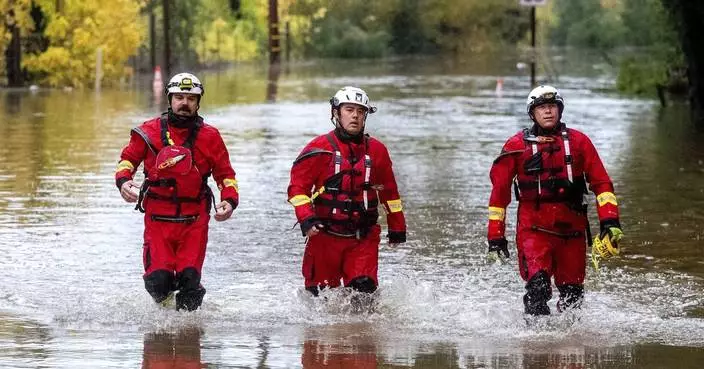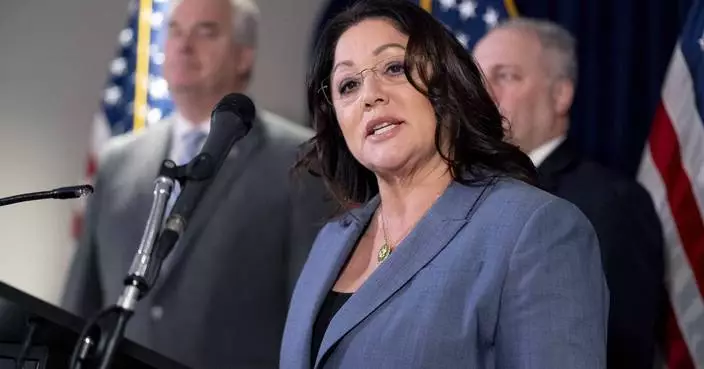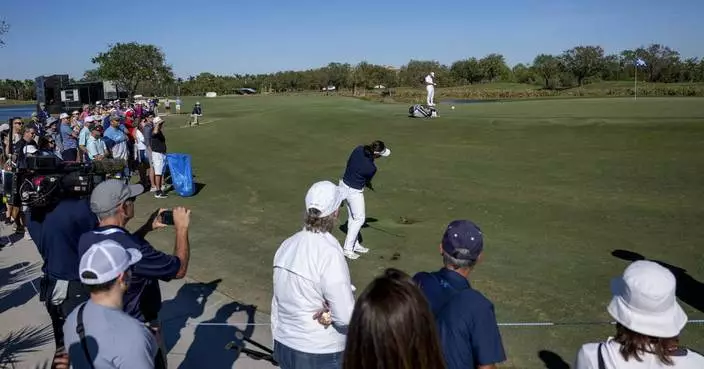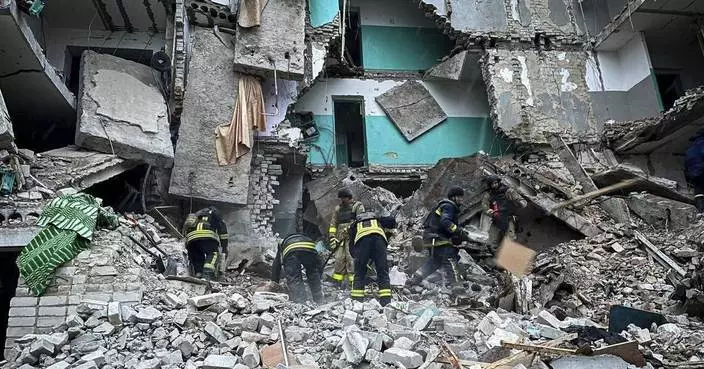LOS ANGELES (AP) — Adrian Kempe and Quinton Byfield scored in the second period, and the Los Angeles Kings beat the Seattle Kraken 2-1 on Saturday.
David Rittich made 19 saves for the Kings, who improved to 6-2-1 at home.
Kempe and Byfield scored 1:44 apart in the second period. Byfield buried a sharp-angle slap shot on a power play while dropping to a knee. It was his 98th career point in 200 games.
Brandon Montour got the Kraken on the board with 1:26 left in the game. He converted a long shot with Joey Daccord off for another skater, but Los Angeles held on.
Daccord finished with 19 stops for Seattle.
Kraken: Jordan Eberle will miss at least three months after undergoing surgery on his pelvis. He had six goals and five assists in 17 games before he got hurt against Chicago on Nov. 14.
Kings: The power play had been in a 1-for-16 rut (6.25%) over the previous six games before Byfield found the net. It was the Kings' lone opportunity with the man-advantage.
After following its 1-0 loss to Buffalo on Wednesday with a fourth straight period of extreme low-event hockey, Los Angeles created a lot more activity and offense to start the second and generate its two goals.
The Kings know how to close out games, improving to 9-0-1 when leading after two periods.
The Kraken visit Anaheim on Monday, and the Kings play at San Jose on Monday.
AP NHL: https://apnews.com/hub/nhl

Seattle Kraken left wing Brandon Tanev (13) vies for the puck with Los Angeles Kings goaltender David Rittich (31) and left wing Warren Foegele (37) during the second period of an NHL hockey game in Los Angeles, Saturday, Nov. 23, 2024. (AP Photo/Alex Gallardo)
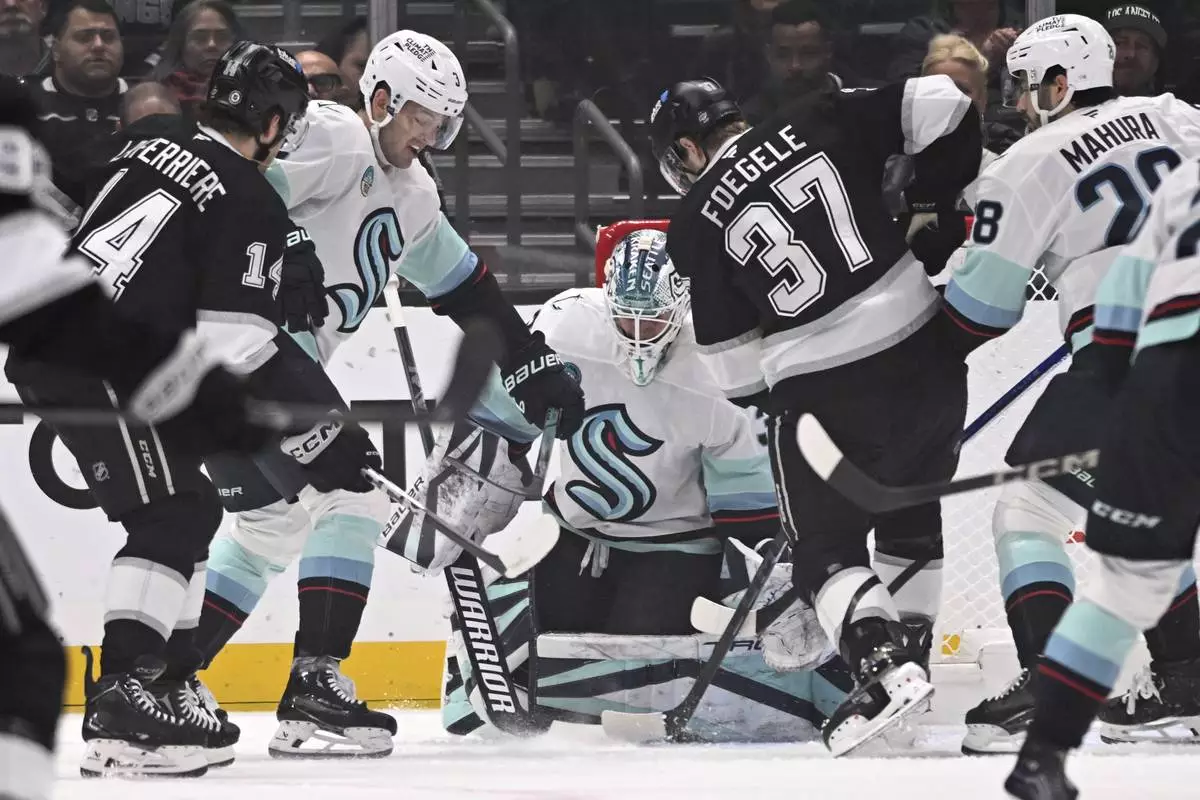
Los Angeles Kings left wing Warren Foegele (37) gets stopped by Seattle Kraken goaltender Joey Daccord (35) during the first period of an NHL hockey game in Los Angeles, Saturday, Nov. 23, 2024. (AP Photo/Alex Gallardo)

Los Angeles Kings left wing Kevin Fiala (22) reacts to a goal by right wing Quinton Byfield (55) against the Seattle Kraken during the second period of an NHL hockey game in Los Angeles, Saturday, Nov. 23, 2024. (AP Photo/Alex Gallardo)

Los Angeles Kings right wing Quinton Byfield (55) reacts after scoring against the Seattle Kraken during the second period of an NHL hockey game in Los Angeles, Saturday, Nov. 23, 2024. (AP Photo/Alex Gallardo)
BAKU, Azerbaijan (AP) — United Nations climate talks adopted a deal to inject at least $300 billion annually in humanity’s fight against climate change, aimed at helping poor nations cope with the ravages of global warming in tense negotiations in the city where industry first tapped oil.
The $300 billion will go to developing countries who need the cash to wean themselves off the coal, oil and gas that causes the globe to overheat, adapt to future warming and pay for the damage caused by climate change’s extreme weather. It’s not near the full amount of $1.3 trillion that developing countries were asking for, but it’s three times a deal of $100 billion a year from 2009 that is expiring. Some delegations said this deal is headed in the right direction, with hopes that more money flows in the future.
It was not quite the agreement by consensus that these meetings usually operate with and developing nations were livid about being ignored.
COP29 President Mukhtar Babayev gaveled the deal into acceptance before any nation had a chance to speak. When they did they blasted him for being unfair to them, the deal for not being enough and the world's rich nations for being too stingy.
“It’s a paltry sum,” India negotiator Chandni Raina said, repeatedly saying how India objected to rousing cheers. “I’m sorry to say we cannot accept it.”
She told The Associated Press that she has lost faith in the United Nations system.
A long line of nations agreed with India and piled on, with Nigeria's Nkiruka Maduekwe, CEO of the National Council on Climate Change, calling the deal an insult and a joke.
“I think we should rethink this. ... We have a right as countries to choose if we are to take this or not. And I am saying we do not accept this,” she said. “This is 3 a.m. and say 'this is what we're going to do,' I don't think so."
The final package pushed through “does not speak or reflect or inspire confidence and trust that we will come out of this grave problem of climate change,” India's Raina said. “The goal (of getting up to $300 billion by 2035) is too little, too distant. At 2035, it’s too far gone.”
“We absolutely object to the unfair means followed for adoption,” Raina said. “We are extremely hurt by this action by the president and the secretariat.”
Speaking for nearly 50 of the poorest nations of the world, Evans Davie Njewa of Malawi was more mild, expressing what he called reservations with the deal.
And U.N. Secretary-General Antonio Guterres said in a post on X that he hoped for a “more ambitious outcome.” But he said the agreement “provides a base on which to build.”
There were somewhat satisfied parties, with European Union's Wopke Hoekstra calling it a new era of climate funding, working hard to help the most vulnerable.
But activists in the plenary hall could be heard coughing over Hoekstra's speech in an attempt to disrupt it.
Eamon Ryan, Ireland’s environment minister, called the agreement “a huge relief.”
“It was not certain. This was tough,” he said. “Because it’s a time of division, of war, of (a) multilateral system having real difficulties, the fact that we could get it through in these difficult circumstances is really important.”
U.N. Climate Change's Executive Secretary Simon Stiell called the deal an “insurance policy for humanity,” adding that like insurance, “it only works – if the premiums are paid in full, and on time.”
The deal is seen as a step toward helping countries on the receiving end create more ambitious targets to limit or cut emissions of heat-trapping gases that are due early next year. It’s part of the plan to keep cutting pollution with new targets every five years, which the world agreed to at the U.N. talks in Paris in 2015.
The Paris agreement set the system of regular ratcheting up climate fighting ambition as away to keep warming under 1.5 degrees Celsius (2.7 degrees Fahrenheit) above pre-industrial levels. The world is already at 1.3 degrees Celsius (2.3 degrees Fahrenheit) and carbon emissions keep rising.
Countries also anticipate that this deal will send signals that help drive funding from other sources, like multilateral development banks and private sources. That was always part of the discussion at these talks — rich countries didn’t think it was realistic to only rely on public funding sources — but poor countries worried that if the money came in loans instead of grants, it would send them sliding further backward into debt that they already struggle with.
“The $300 billion goal is not enough, but is an important down payment toward a safer, more equitable future,” said World Resources Institute President Ani Dasgupta. “This deal gets us off the starting block. Now the race is on to raise much more climate finance from a range of public and private sources, putting the whole financial system to work behind developing countries’ transitions.”
And even though it's far from the needed $1.3 trillion, it's more than the $250 billion that was on the table in an earlier draft of the text, which outraged many countries and led to a period of frustration and stalling over the final hours of the summit.
The several different texts adopted early Sunday morning included a vague but not specific reference to last year's Global Stocktake approved in Dubai. Last year there was a battle about first-of-its-kind language on getting rid of the oil, coal and natural gas, but instead it called for a transition away from fossil fuels. The latest talks only referred to the Dubai deal, but did not explicitly repeat the call for a transition away from fossil fuels.
Countries also agreed on the adoption of Article 6, creating markets to trade carbon pollution rights, an idea that was set up as part of the 2015 Paris Agreement to help nations work together to reduce climate-causing pollution. Part of that was a system of carbon credits, allowing nations to put planet-warming gasses in the air if they offset emissions elsewhere. Backers said a U.N.-backed market could generate up to an additional $250 billion a year in climate financial aid.
Despite its approval, carbon markets remain a contentious plan because many experts say the new rules adopted don’t prevent misuse, don’t work and give big polluters an excuse to continue spewing emissions.
“What they’ve done essentially is undermine the mandate to try to reach 1.5,” said Tamara Gilbertson, climate justice program coordinator with the Indigenous Environmental Network. Greenpeace’s An Lambrechts, called it a “climate scam” with many loopholes.
With this deal wrapped up as crews dismantle the temporary venue, many have eyes on next year’s climate talks in Belem, Brazil.
Associated Press journalists Ahmed Hatem, Olivia Zhang, Aleksandar Furtula and Joshua A. Bickel contributed to this report.
The Associated Press’ climate and environmental coverage receives financial support from multiple private foundations. AP is solely responsible for all content. Find AP’s standards for working with philanthropies, a list of supporters and funded coverage areas at AP.org.
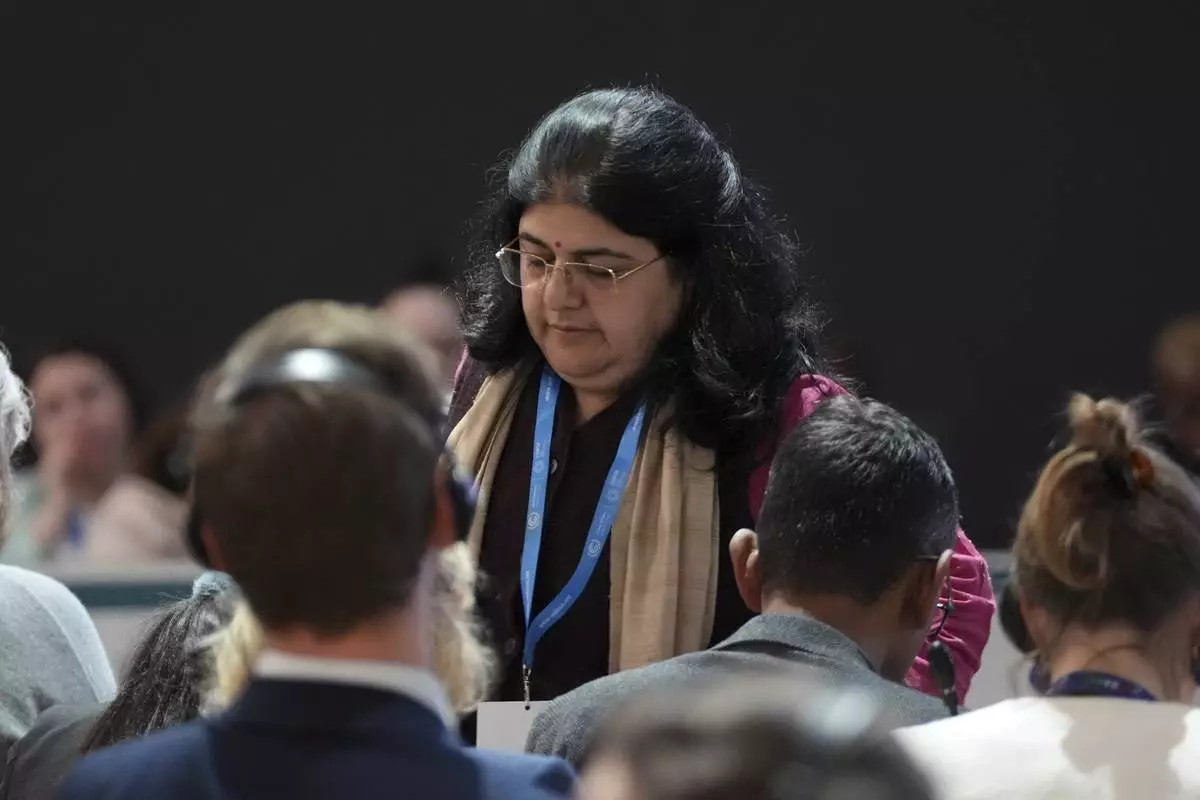
Chandni Raina, part of India's negotiating team, leaves a closing plenary session at the COP29 U.N. Climate Summit, Sunday, Nov. 24, 2024, in Baku, Azerbaijan. (AP Photo/Joshua A. Bickel)
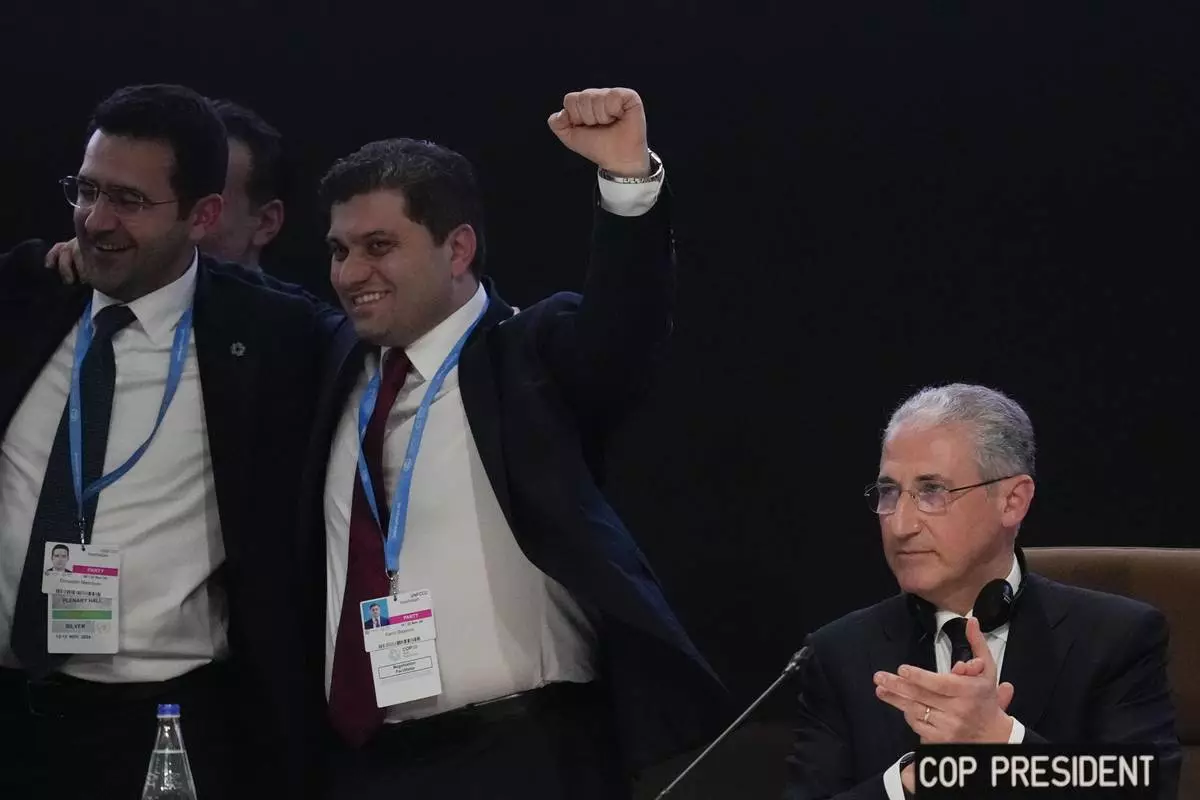
Mukhtar Babayev, COP29 President, applauds as he attends a closing plenary at the COP29 U.N. Climate Summit, Sunday, Nov. 24, 2024, in Baku, Azerbaijan. (AP Photo/Rafiq Maqbool)
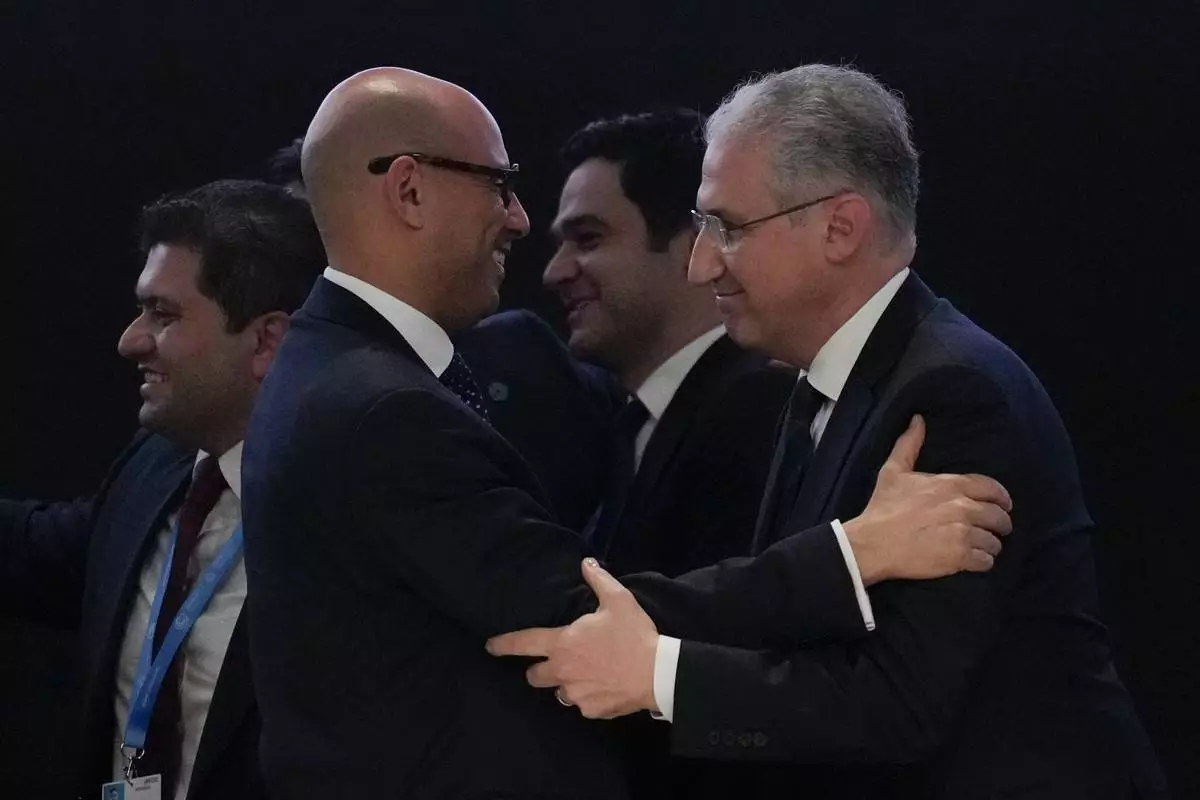
Mukhtar Babayev, COP29 President, right, embraces Simon Stiell, United Nations climate chief, after gaveling a deal for money to curb climate change at the COP29 U.N. Climate Summit, Sunday, Nov. 24, 2024, in Baku, Azerbaijan. (AP Photo/Rafiq Maqbool)
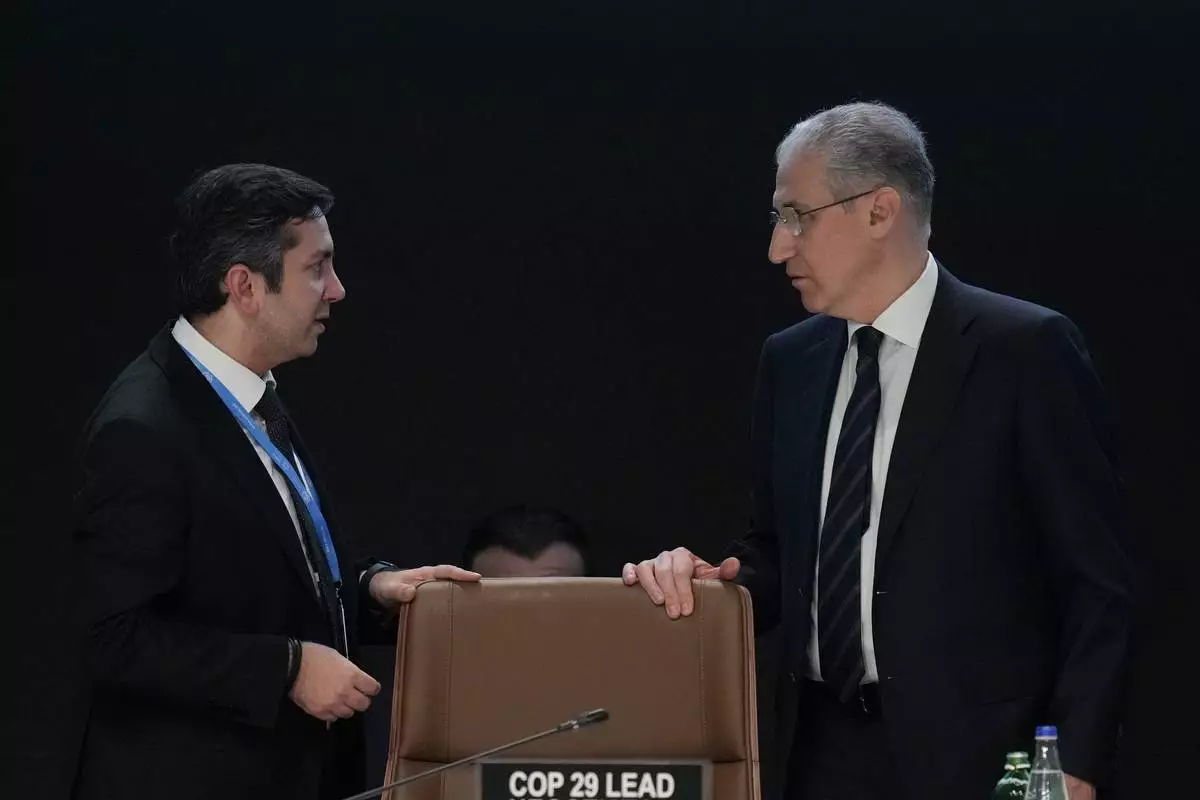
Yalchin Rafiyev, Azerbaijan's COP29 lead negotiator, left, talks to Mukhtar Babayev, COP29 President, ahead of a plenary session at the COP29 U.N. Climate Summit, Sunday, Nov. 24, 2024, in Baku, Azerbaijan. (AP Photo/Rafiq Maqbool)
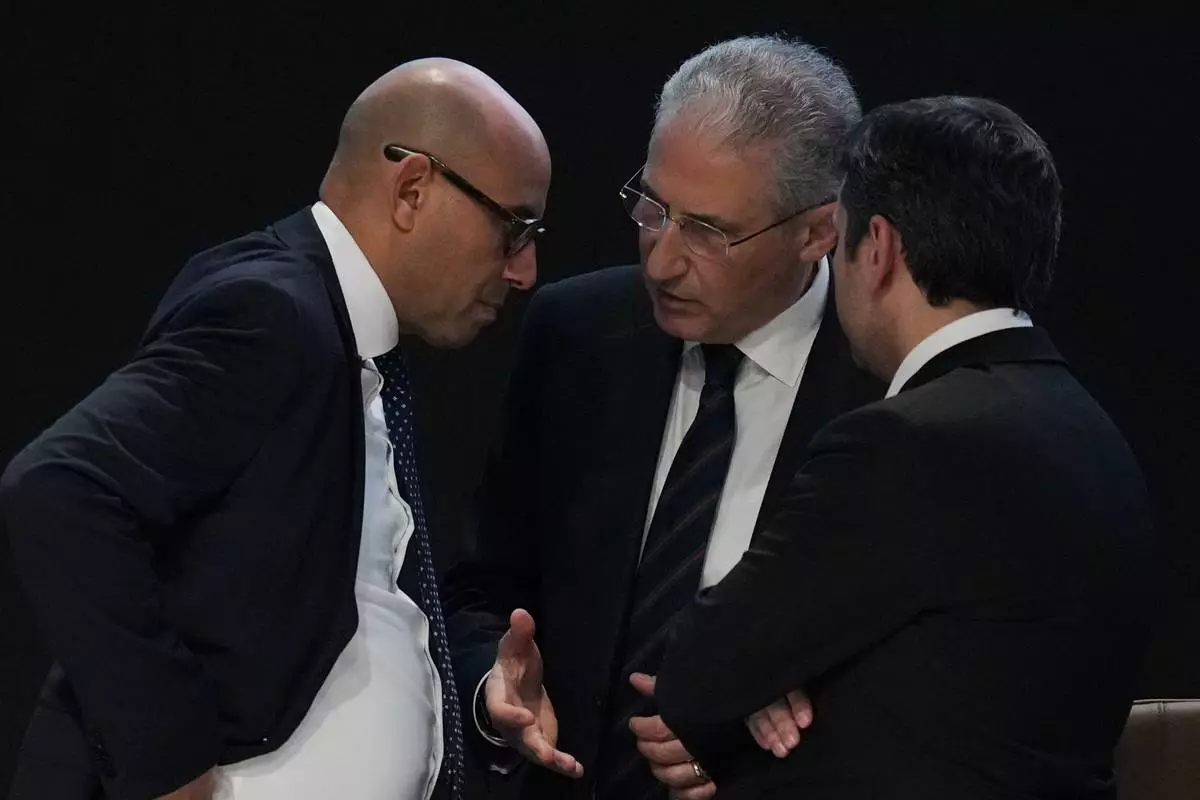
Simon Stiell, United Nations climate chief, left, Mukhtar Babayev, COP29 President, center, and Yalchin Rafiyev, Azerbaijan's COP29 lead negotiator, talk ahead of a plenary session at the COP29 U.N. Climate Summit, Sunday, Nov. 24, 2024, in Baku, Azerbaijan. (AP Photo/Rafiq Maqbool)
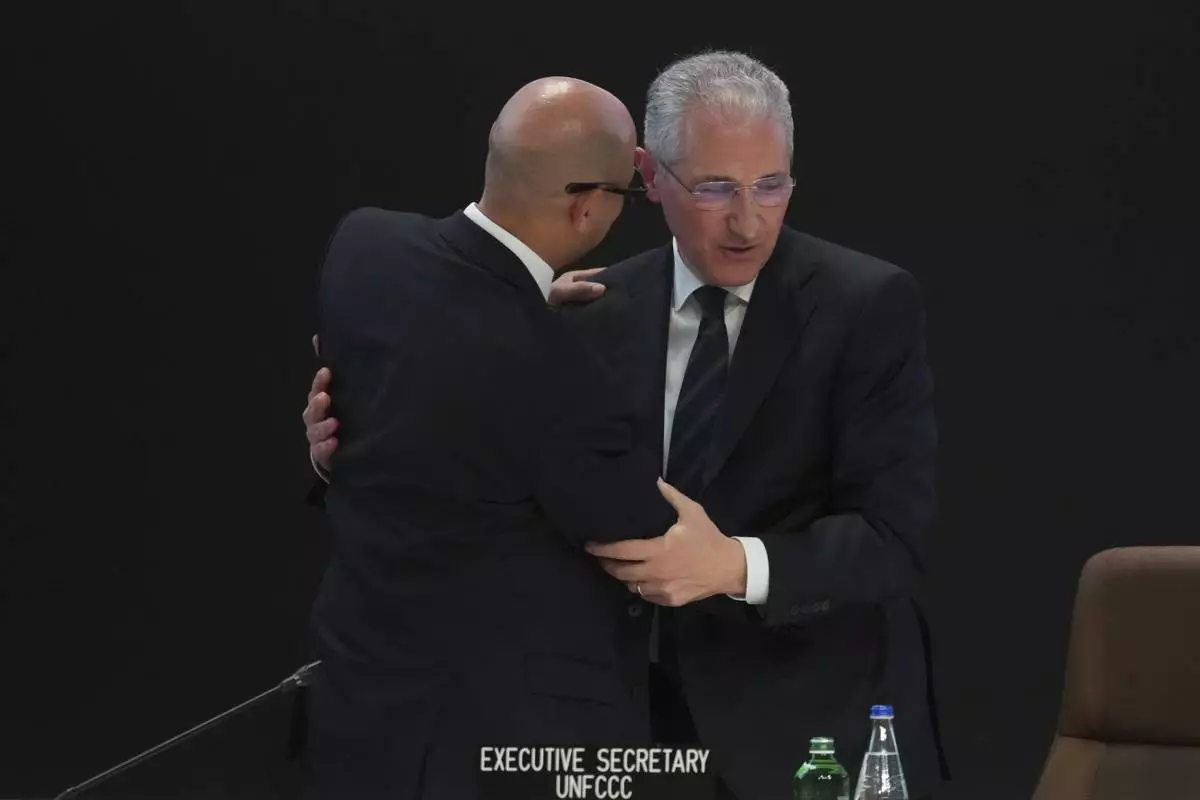
Mukhtar Babayev, COP29 President, right, and Simon Stiell, United Nations climate chief, embrace after a plenary session at the COP29 U.N. Climate Summit, Saturday, Nov. 23, 2024, in Baku, Azerbaijan. (AP Photo/Sergei Grits)
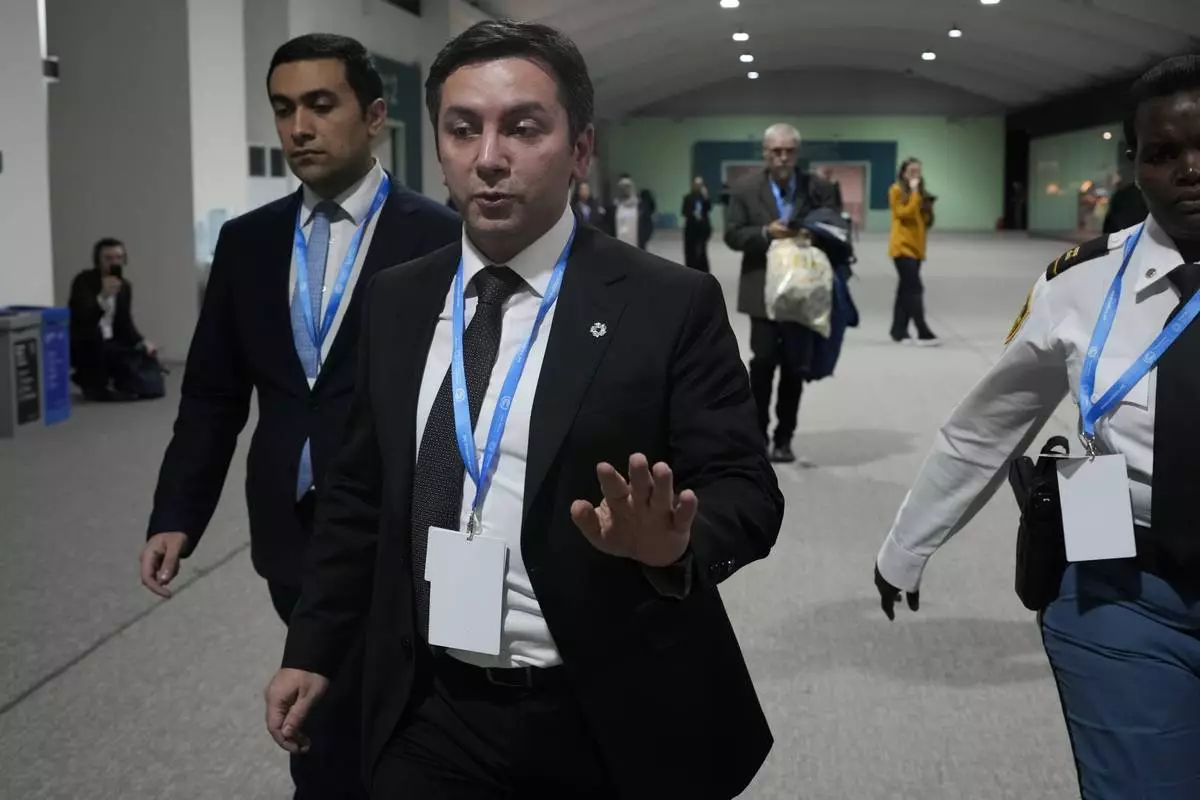
Yalchin Rafiyev, Azerbaijan's COP29 lead negotiator, gestures as he walks through the COP29 U.N. Climate Summit, Saturday, Nov. 23, 2024, in Baku, Azerbaijan. (AP Photo/Rafiq Maqbool)
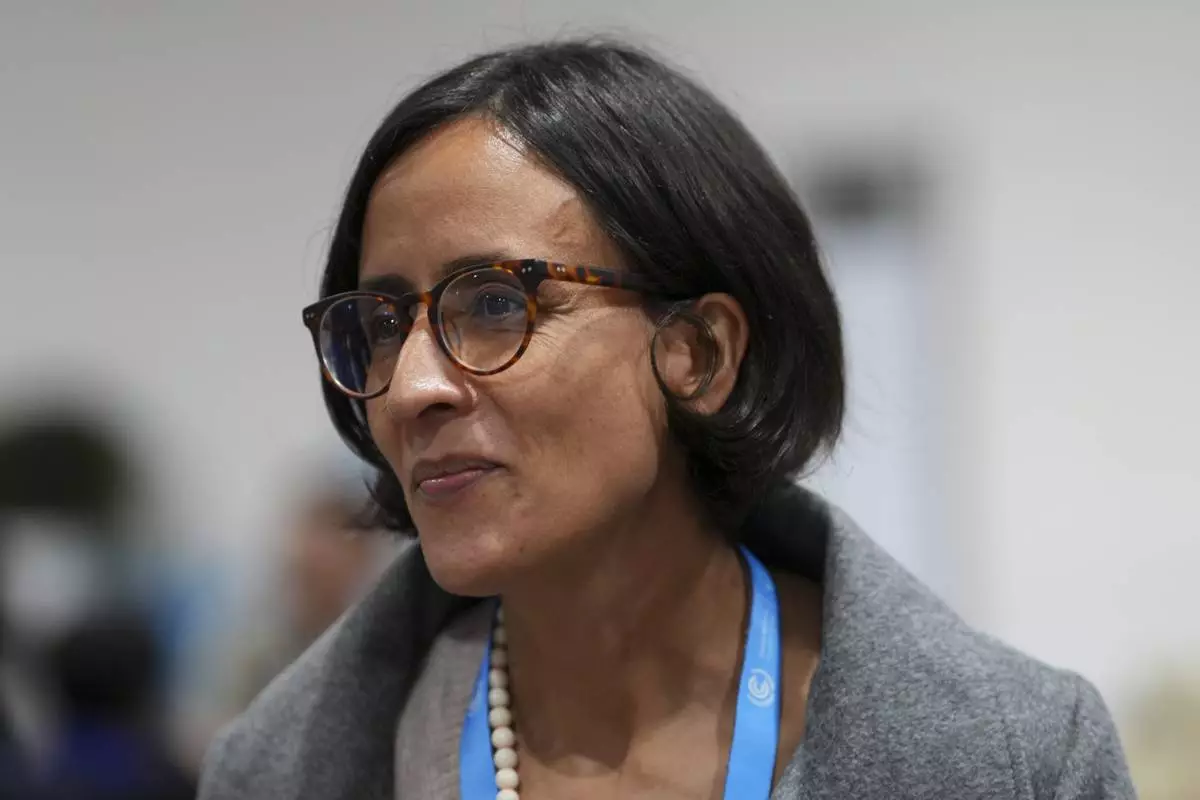
Susana Muhamad, environment minister of Colombia, speaks to members of the media during the COP29 U.N. Climate Summit, Saturday, Nov. 23, 2024, in Baku, Azerbaijan. (AP Photo/Peter Dejong)
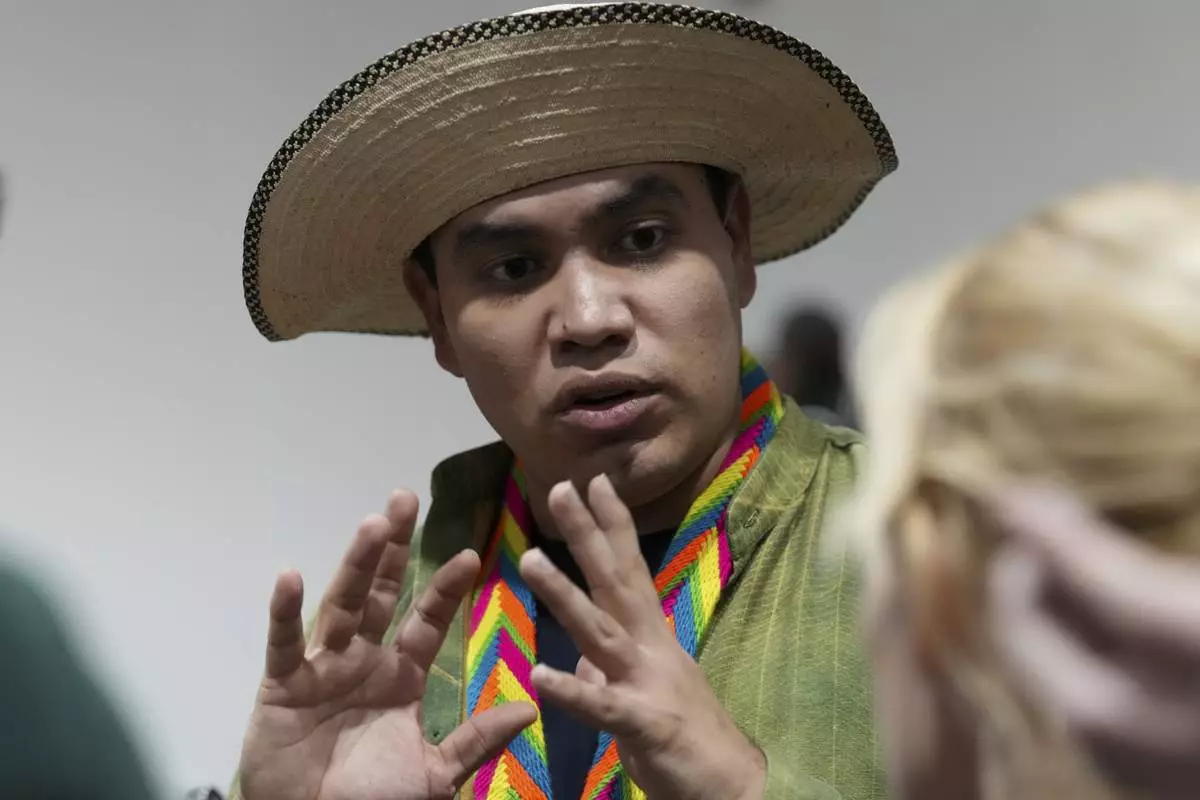
Panama Climate Envoy Juan Carlos Monterrey Gomez speaks to members of the media during the COP29 U.N. Climate Summit, Saturday, Nov. 23, 2024, in Baku, Azerbaijan. (AP Photo/Sergei Grits)
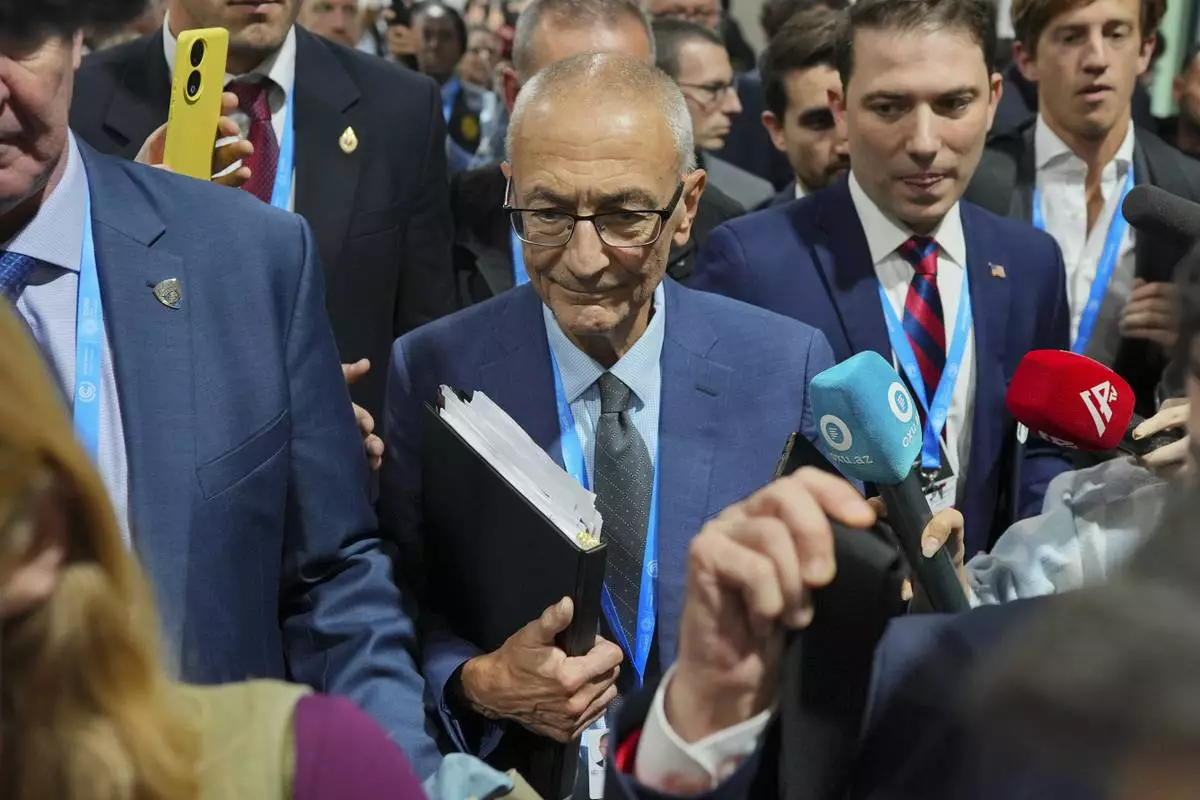
John Podesta, U.S. climate envoy, walks through a crowd during the COP29 U.N. Climate Summit, Saturday, Nov. 23, 2024, in Baku, Azerbaijan. (AP Photo/Peter Dejong)
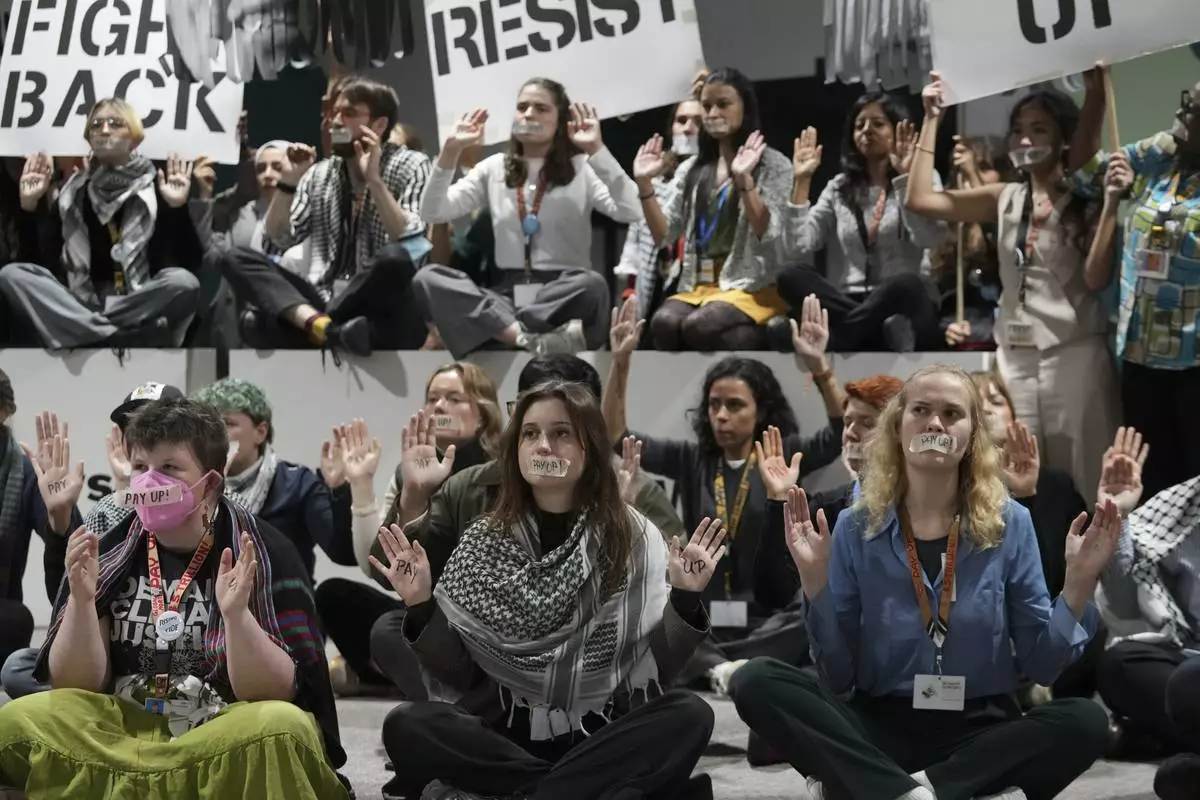
Activists participate in a demonstration at the COP29 U.N. Climate Summit, Saturday, Nov. 23, 2024, in Baku, Azerbaijan. (AP Photo/Sergei Grits)
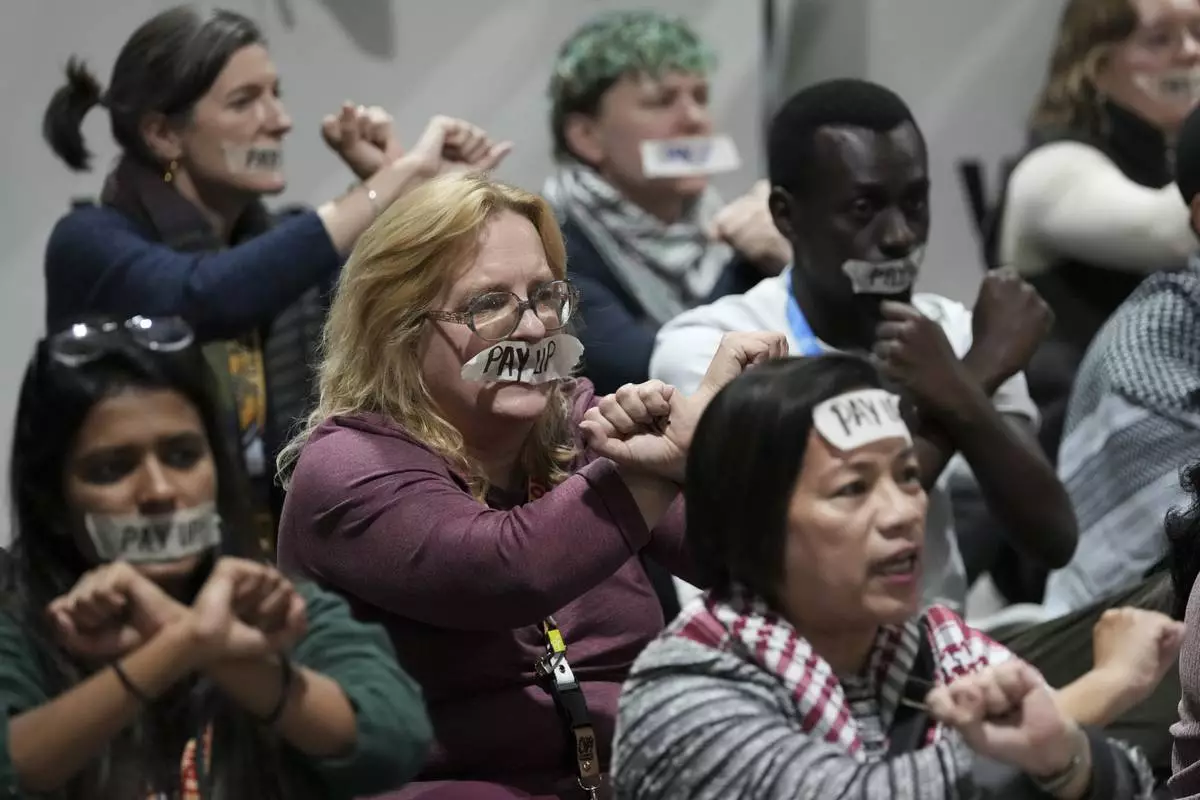
Activists participate in a demonstration for climate finance at the COP29 U.N. Climate Summit, Saturday, Nov. 23, 2024, in Baku, Azerbaijan. (AP Photo/Sergei Grits)
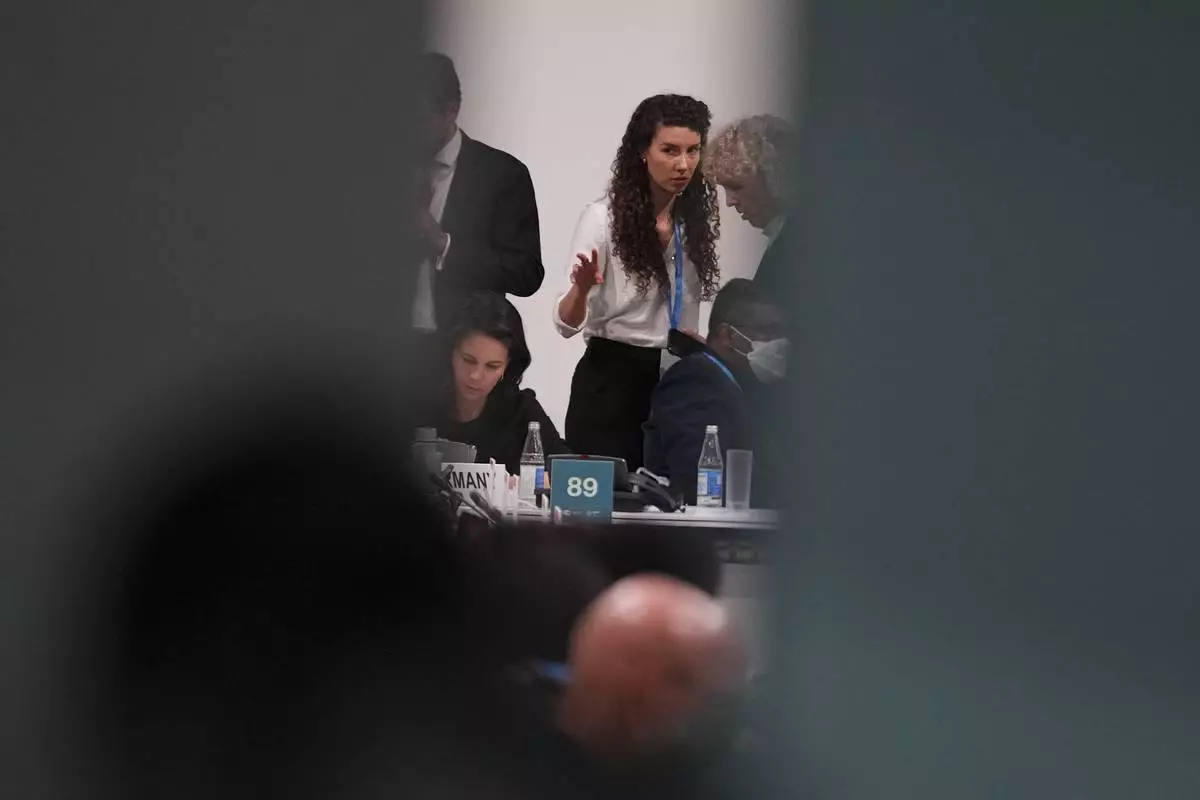
Jennifer Morgan, Germany climate envoy, right, and Joanna MacGregor, senior advisor for U.N. climate change, talk near Germany Foreign Minister Annalena Baerbock, bottom left, in a meeting room at the COP29 U.N. Climate Summit, Saturday, Nov. 23, 2024, in Baku, Azerbaijan. (AP Photo/Peter Dejong)
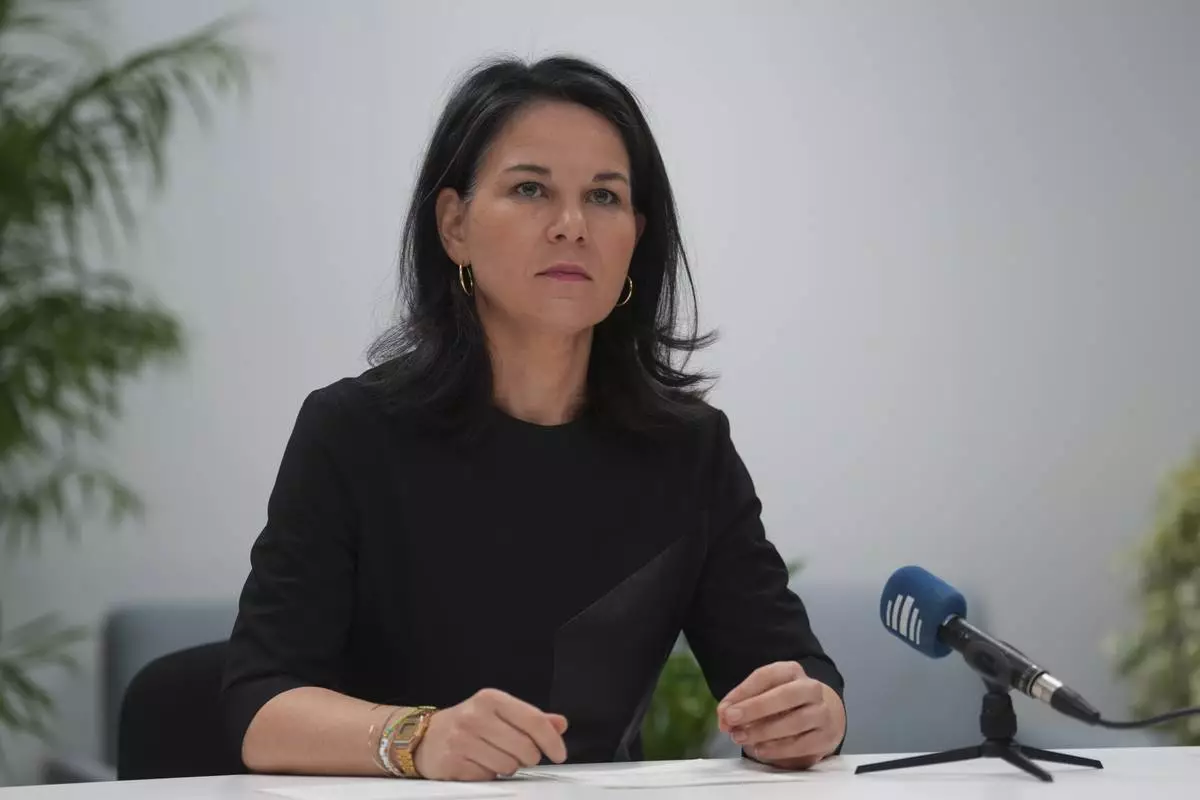
Germany Foreign Minister Annalena Baerbock attends a news conference at the COP29 U.N. Climate Summit, Saturday, Nov. 23, 2024, in Baku, Azerbaijan. (AP Photo/Peter Dejong)
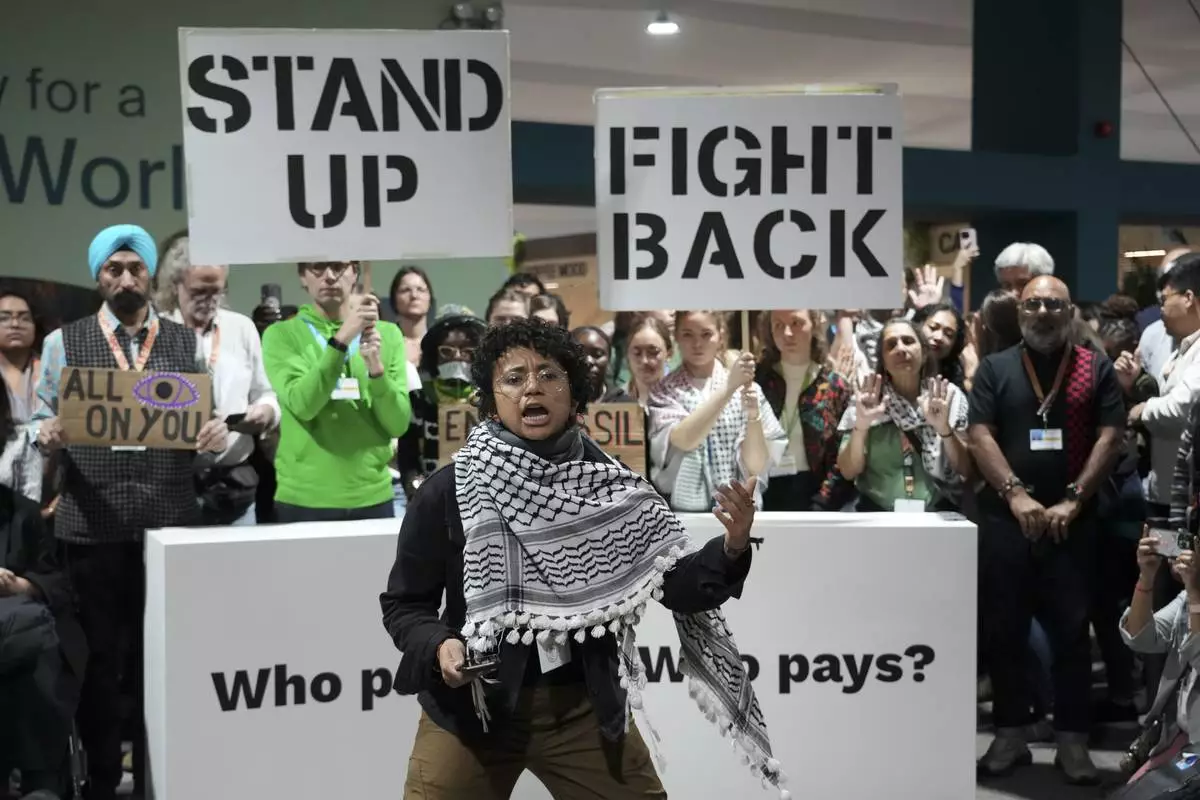
ADDDS NAME Activist Gina Marcela Cortes Valderrama, center, participates in a demonstration for climate finance at the COP29 U.N. Climate Summit, Saturday, Nov. 23, 2024, in Baku, Azerbaijan. (AP Photo/Sergei Grits)
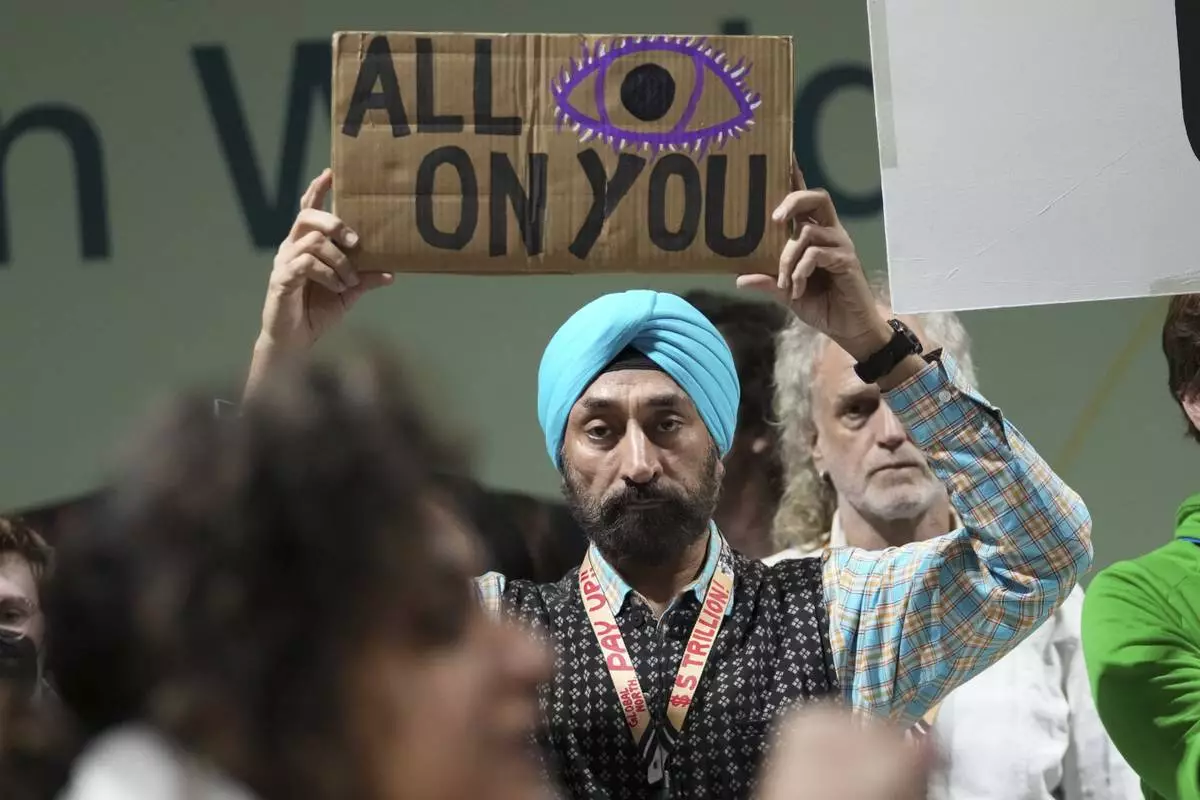
Activist Harjeet Singh holds a sign as he attends a demonstration for climate finance at the COP29 U.N. Climate Summit, Saturday, Nov. 23, 2024, in Baku, Azerbaijan. (AP Photo/Sergei Grits)
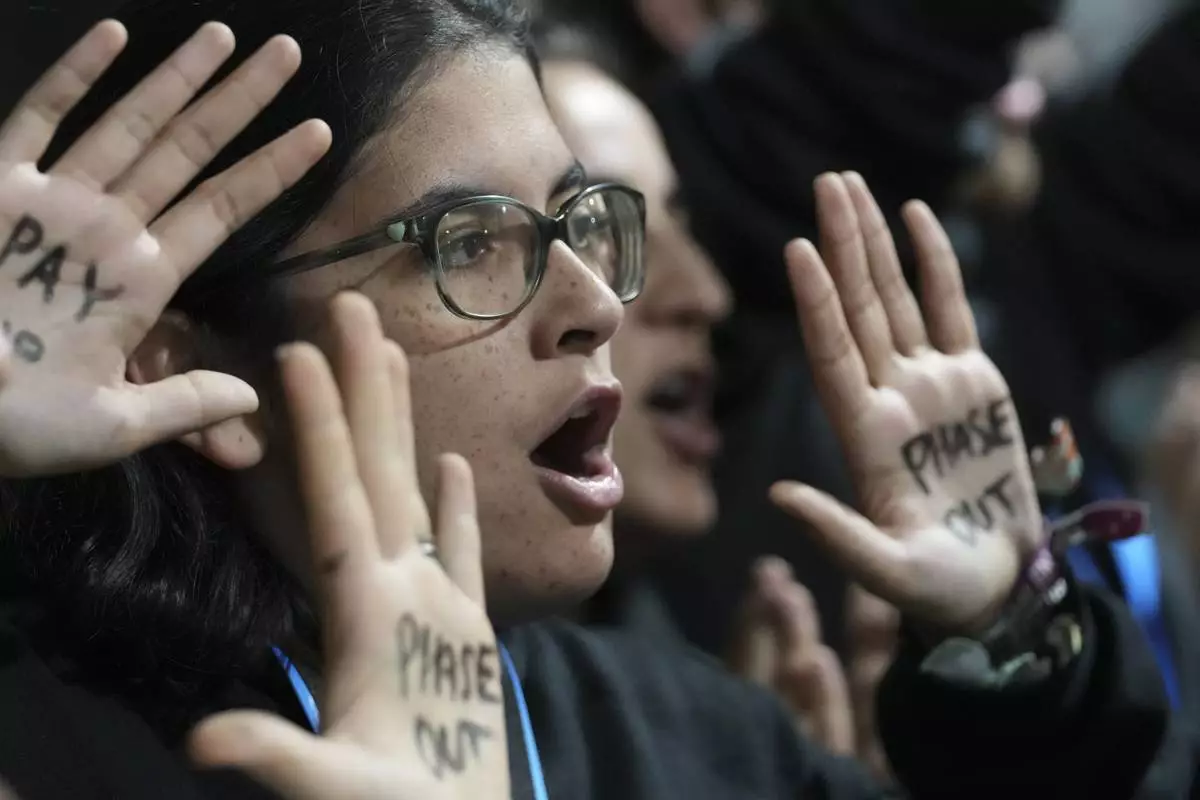
An activists participates in a demonstration for climate finance at the COP29 U.N. Climate Summit, Saturday, Nov. 23, 2024, in Baku, Azerbaijan. (AP Photo/Sergei Grits)
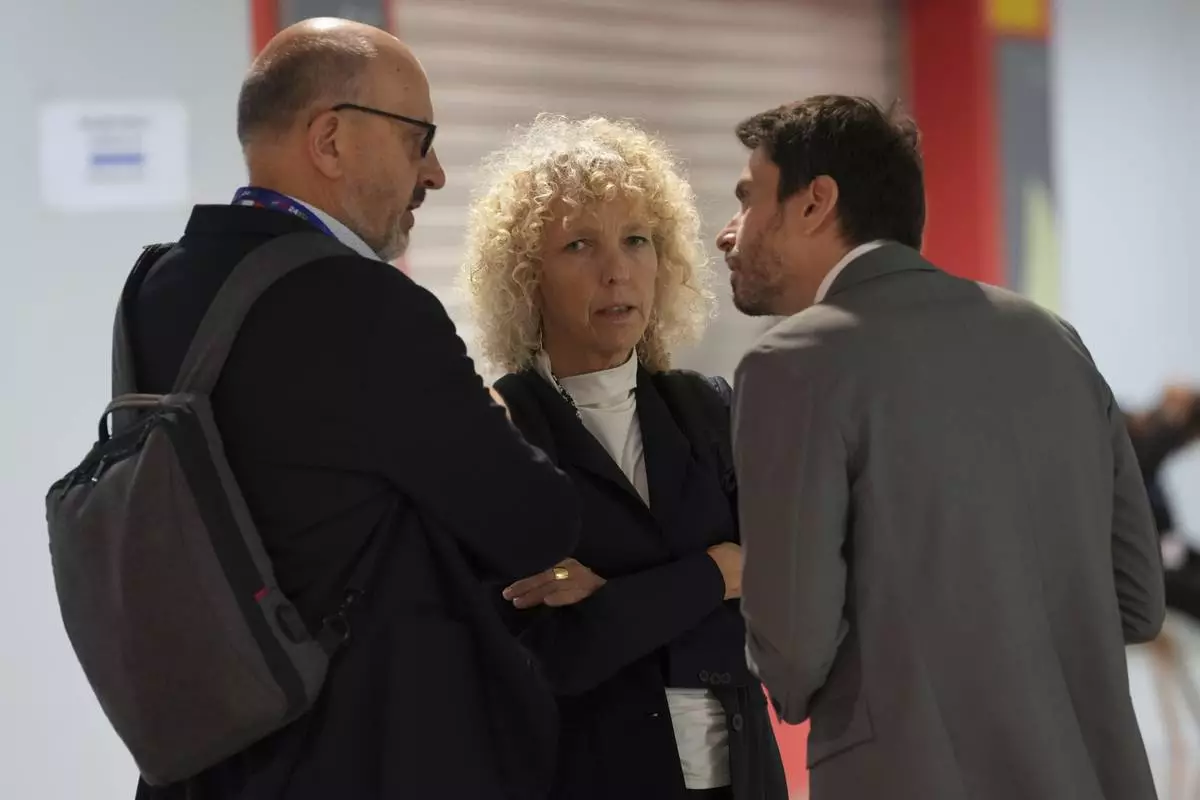
Jennifer Morgan, Germany climate envoy, speaks in a hallway during the COP29 U.N. Climate Summit, Saturday, Nov. 23, 2024, in Baku, Azerbaijan. (AP Photo/Peter Dejong)
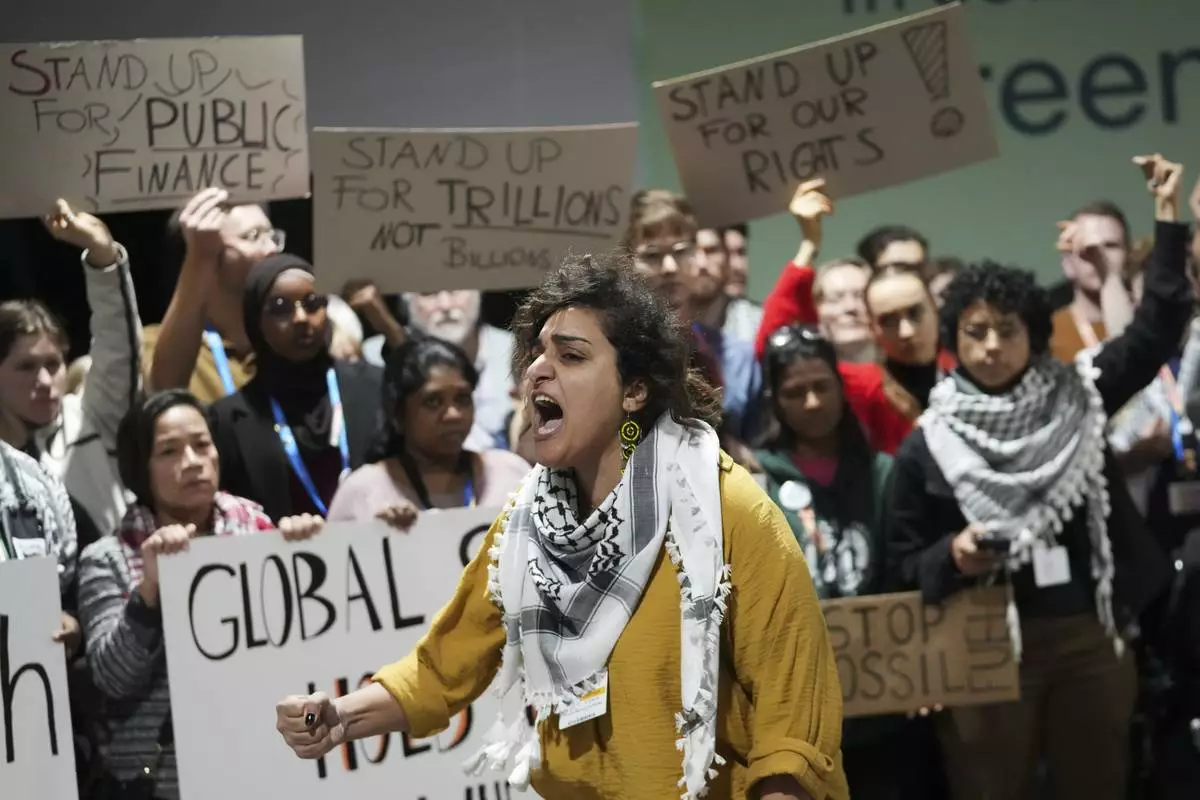
Activists participate in a demonstration for climate finance at the COP29 U.N. Climate Summit, Saturday, Nov. 23, 2024, in Baku, Azerbaijan. (AP Photo/Sergei Grits)
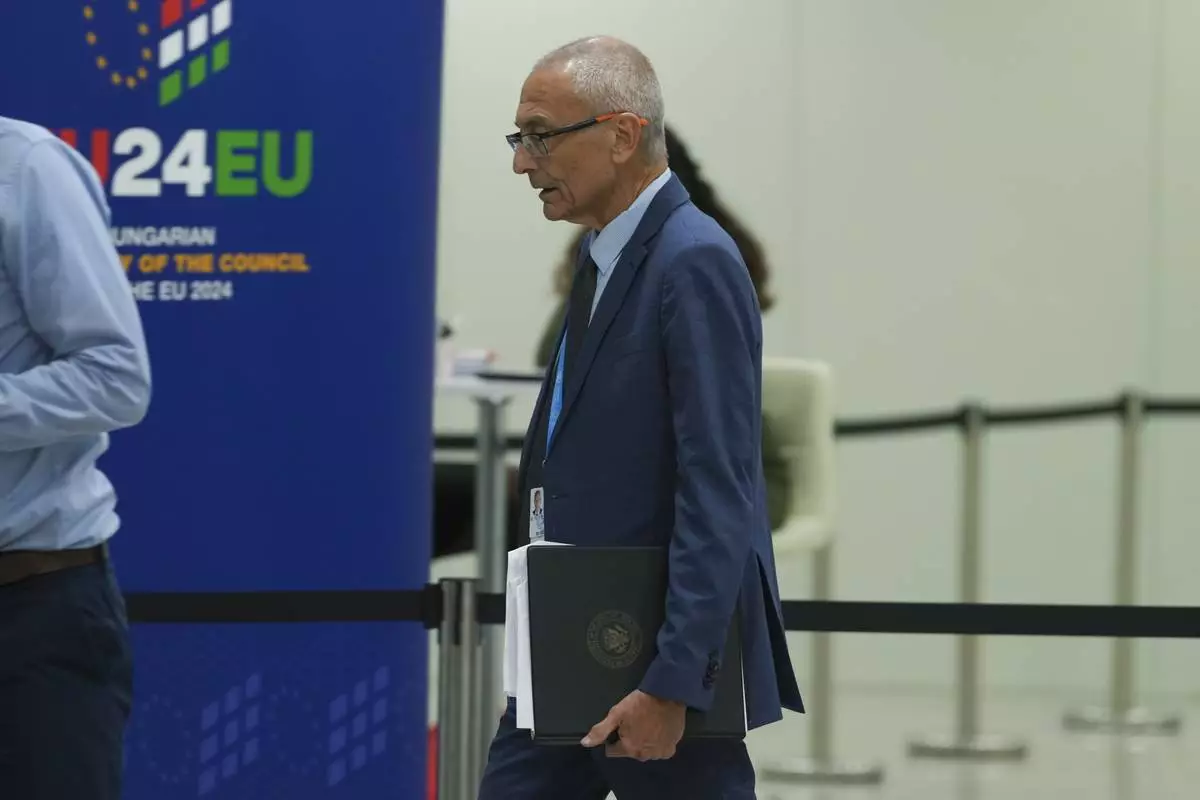
John Podesta, U.S. climate envoy, walks in the hallway during the COP29 U.N. Climate Summit, Saturday, Nov. 23, 2024, in Baku, Azerbaijan. (AP Photo/Peter Dejong)
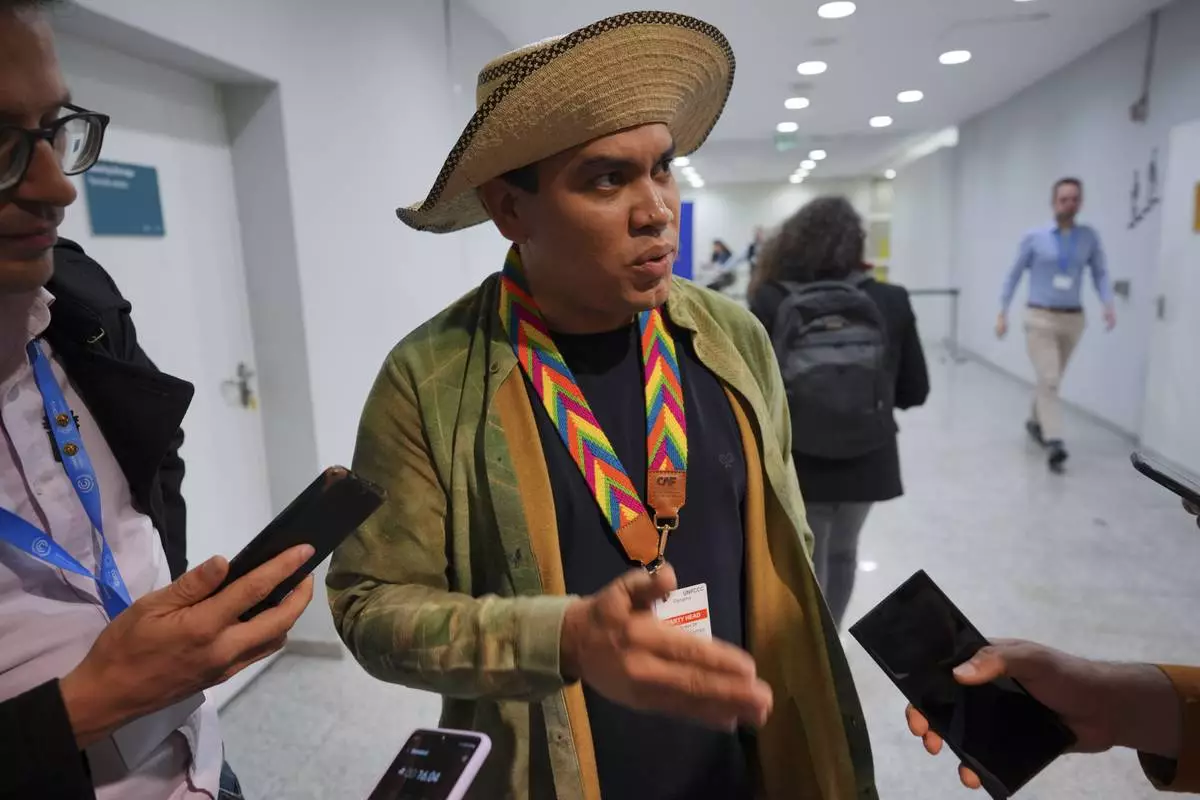
Panama Climate Envoy Juan Carlos Monterrey Gomez speaks to members of the media at the COP29 U.N. Climate Summit, Saturday, Nov. 23, 2024, in Baku, Azerbaijan. (AP Photo/Peter Dejong)
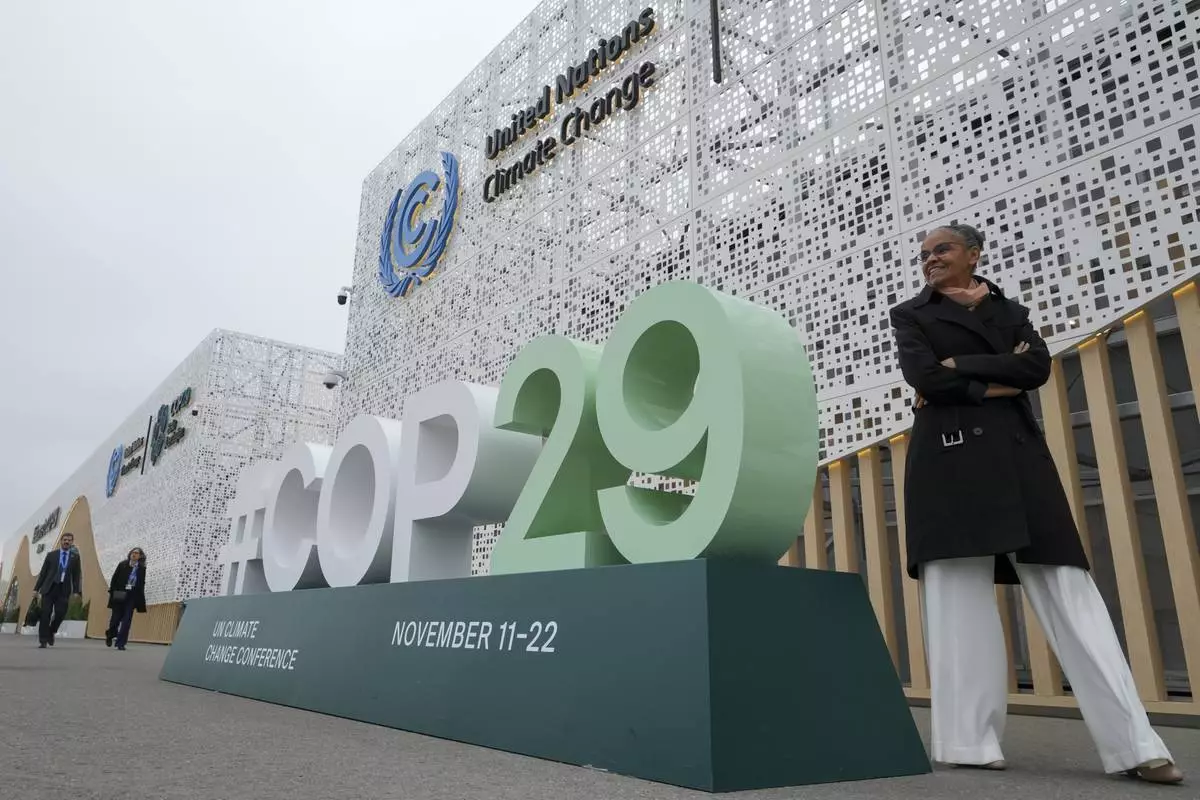
Marina Silva, Brazil environment minister, stands near a sign for the COP29 U.N. Climate Summit, Saturday, Nov. 23, 2024, in Baku, Azerbaijan. (AP Photo/Sergei Grits)
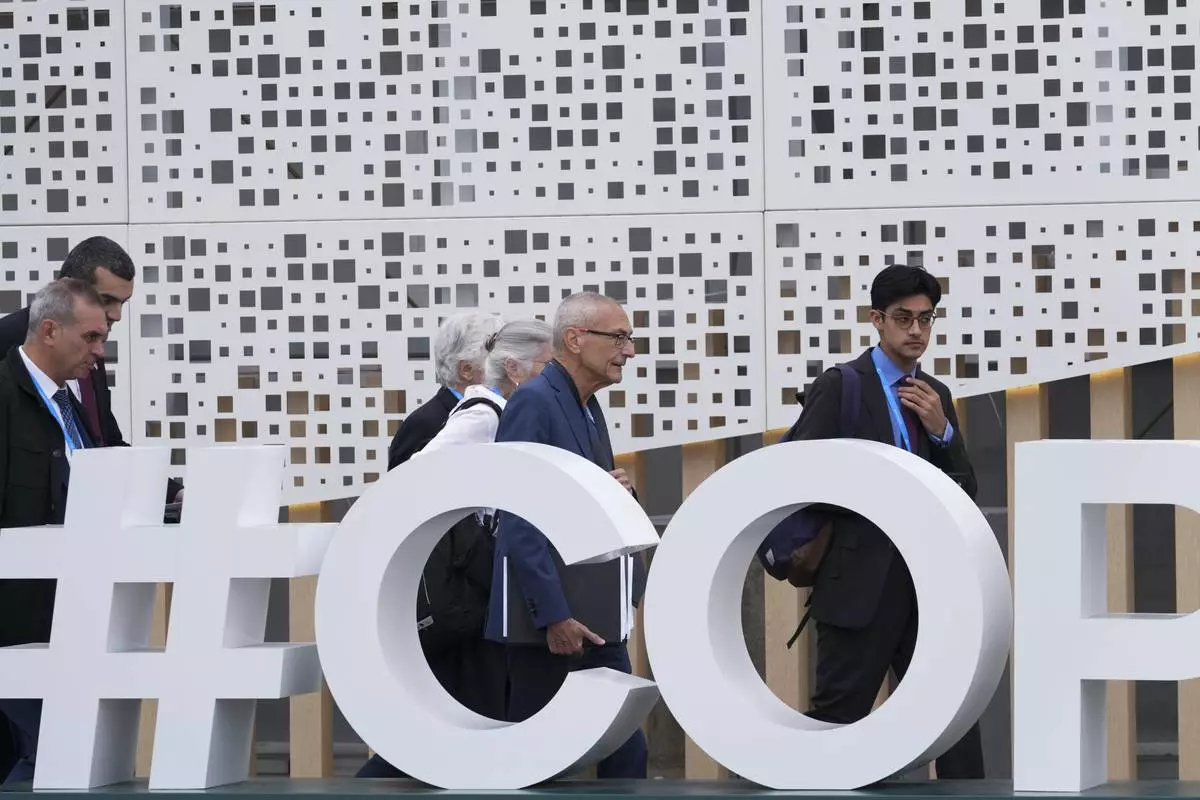
John Podesta, U.S. climate envoy, center right, and U.S. Deputy Climate Envoy Sue Biniaz, center, walk outside the venue for the COP29 U.N. Climate Summit, Saturday, Nov. 23, 2024, in Baku, Azerbaijan. (AP Photo/Sergei Grits)
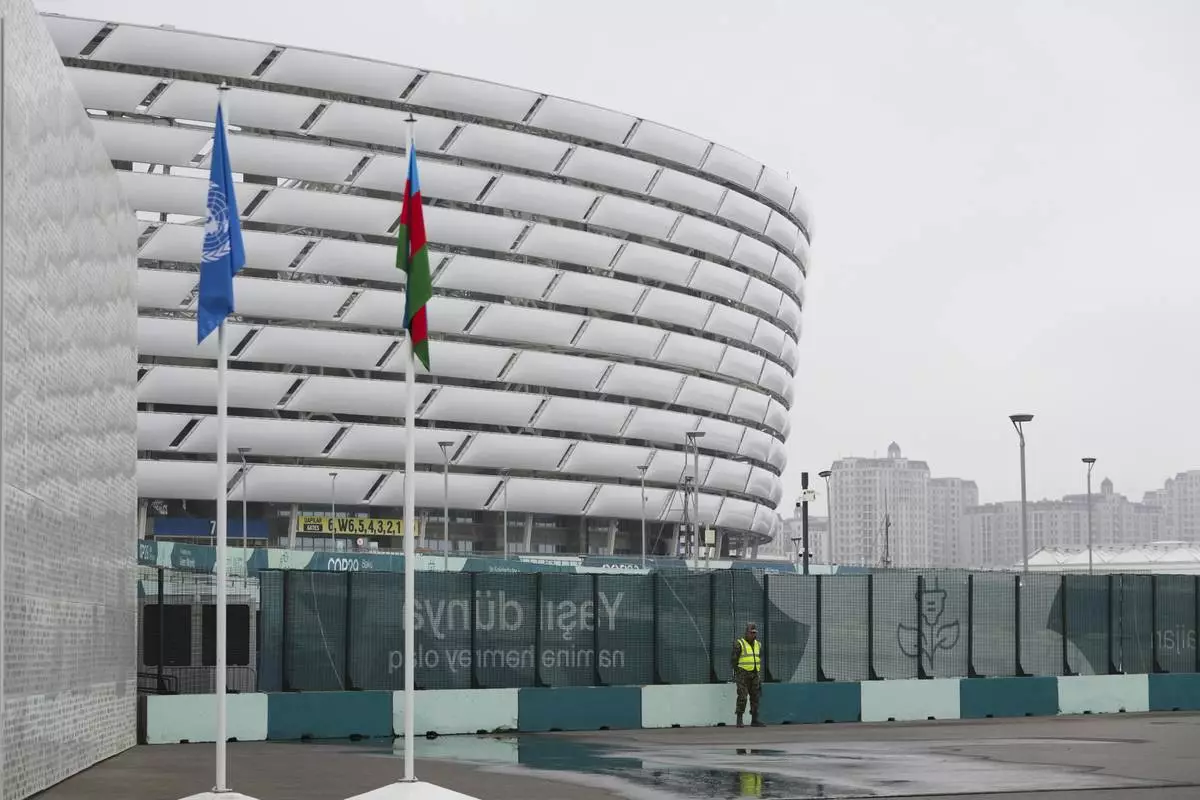
A member of security stands with the Baku Olympic Stadium in the background during the COP29 U.N. Climate Summit, Saturday, Nov. 23, 2024, in Baku, Azerbaijan. (AP Photo/Sergei Grits)
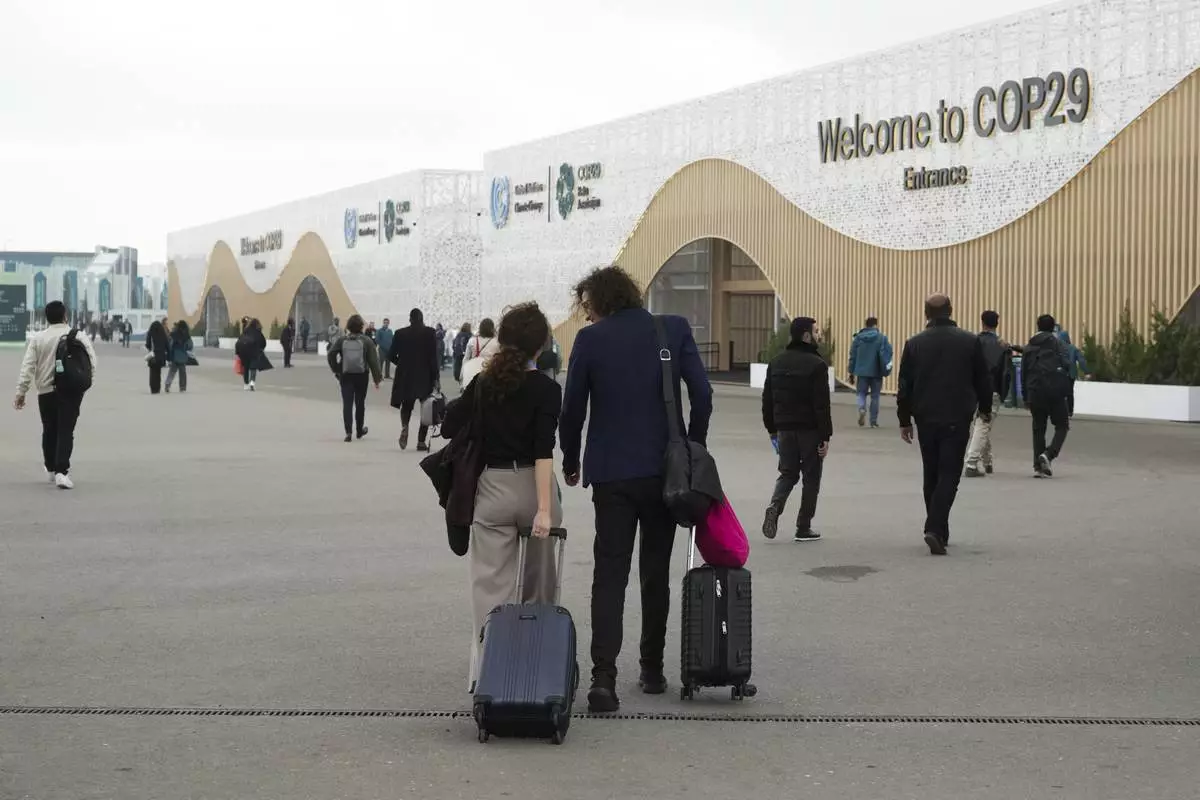
Attendees pull luggage as they walk into the venue for the COP29 U.N. Climate Summit, Saturday, Nov. 23, 2024, in Baku, Azerbaijan. (AP Photo/Sergei Grits)
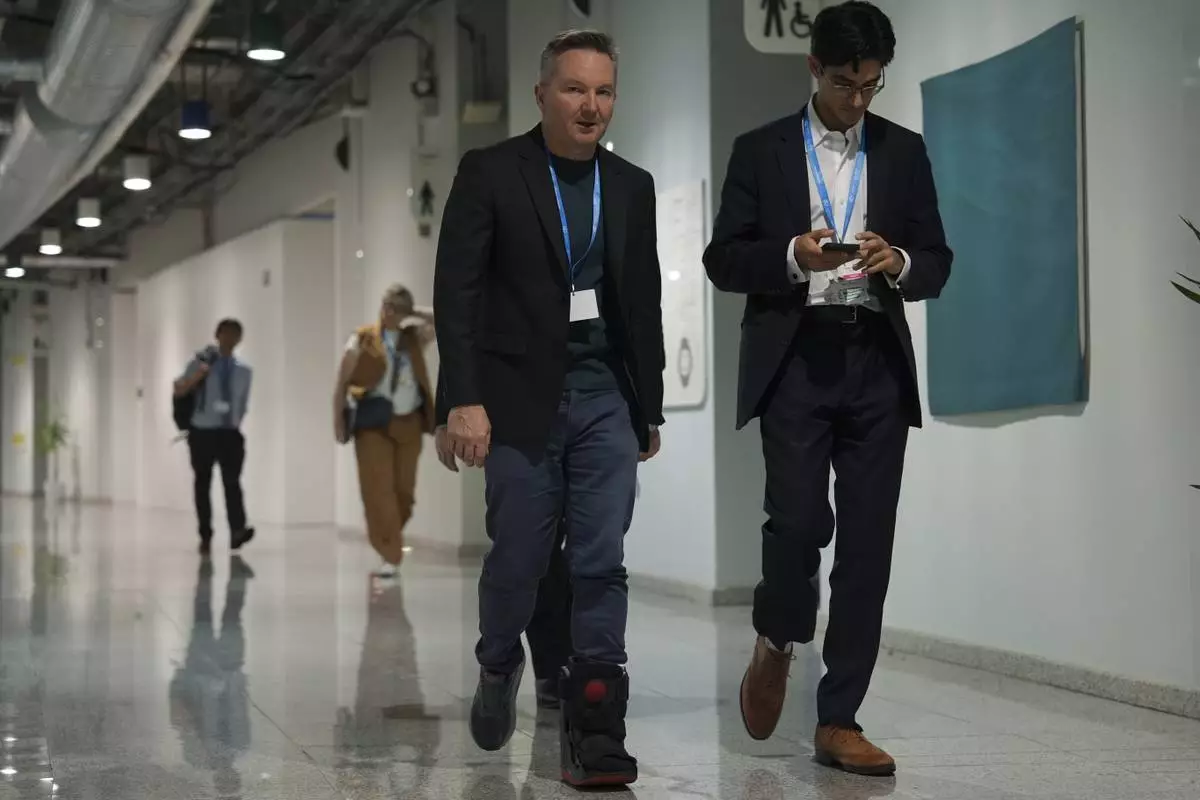
Australia Climate Minister Chris Bowen, center, walks through a hallway at the COP29 U.N. Climate Summit in the early hours of Saturday, Nov. 23, 2024, in Baku, Azerbaijan. (AP Photo/Joshua A. Bickel)
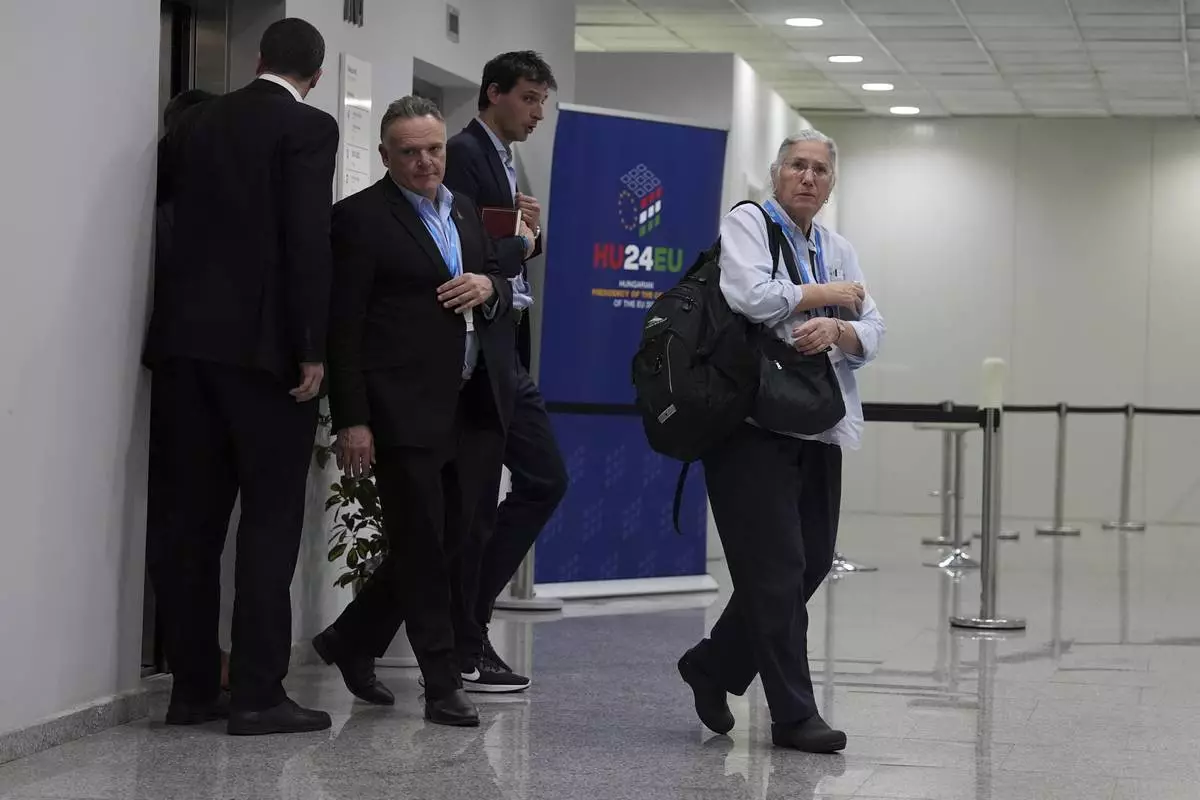
U.S. Deputy Climate Envoy Sue Biniaz, right, and Wopke Hoekstra, EU climate commissioner, second from right, walk out of an elevator during the COP29 U.N. Climate Summit in the early hours of Saturday, Nov. 23, 2024, in Baku, Azerbaijan. (AP Photo/Joshua A. Bickel)
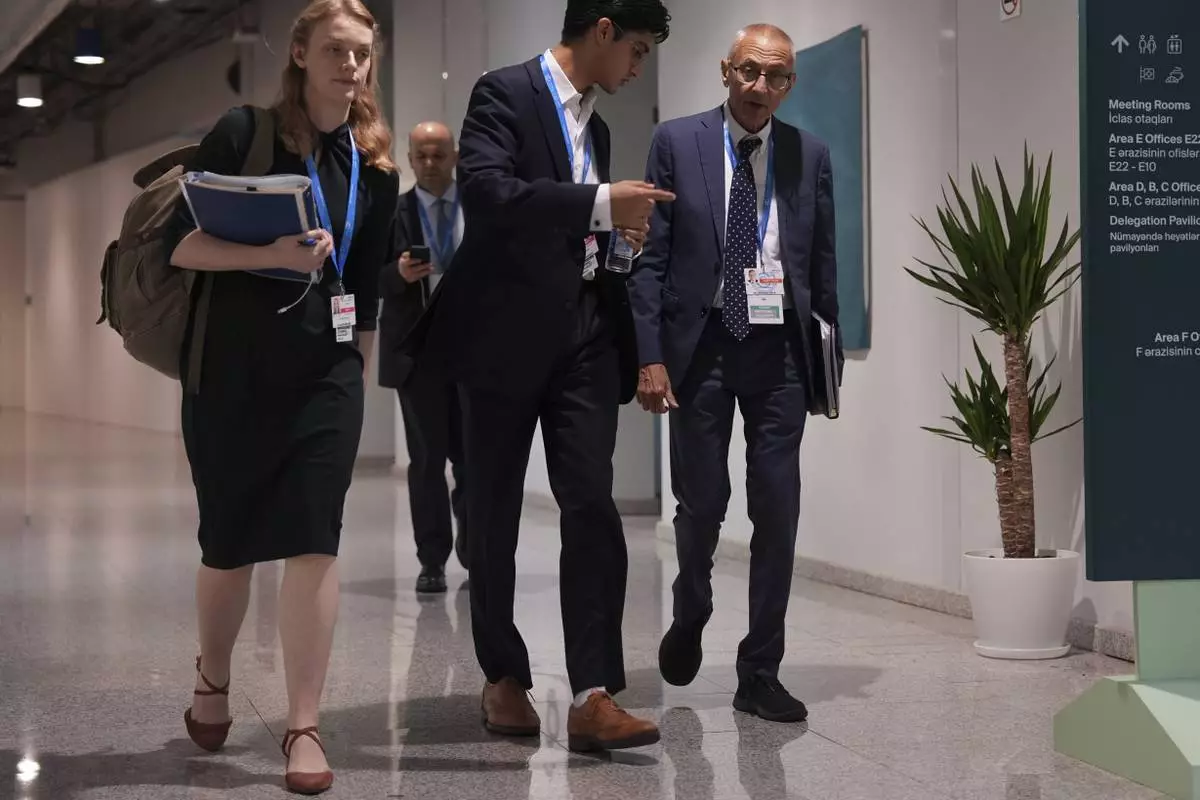
John Podesta, U.S. climate envoy, right, walks through the hallways of the COP29 U.N. Climate Summit in the early hours of Saturday, Nov. 23, 2024, in Baku, Azerbaijan. (AP Photo/Joshua A. Bickel)
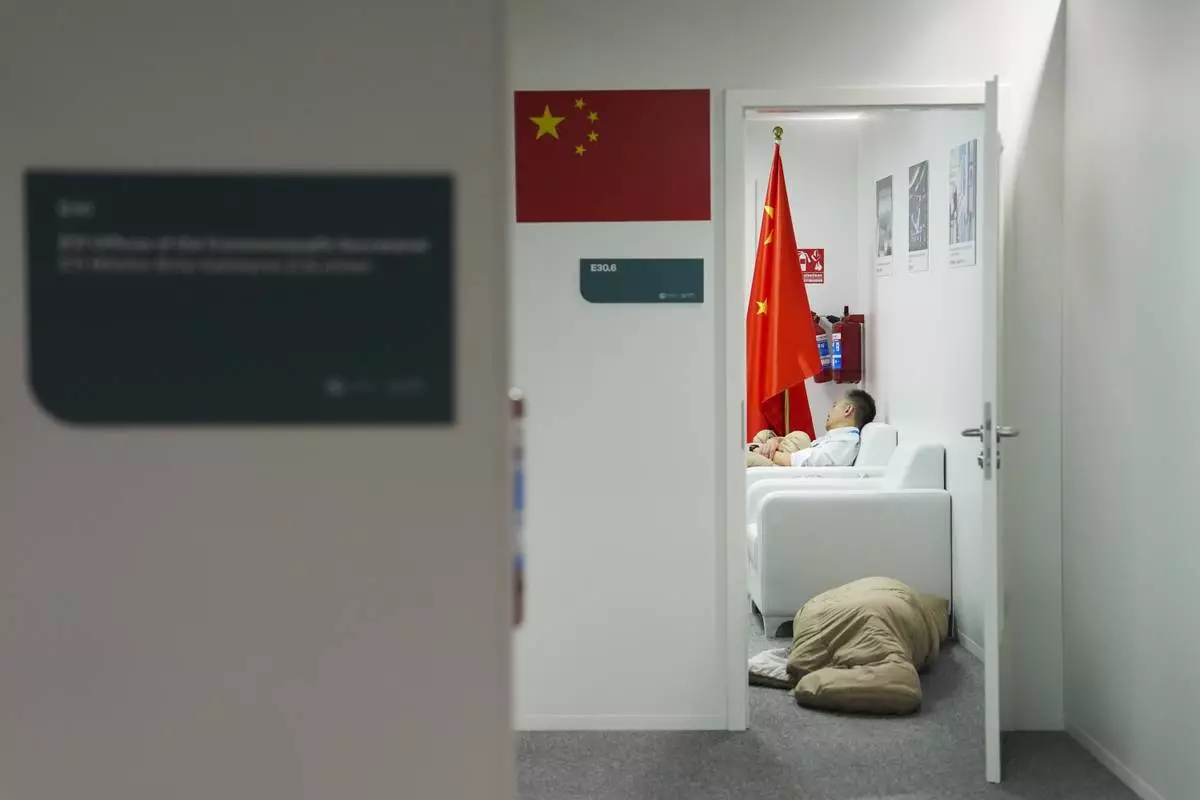
People sleep in the Chinese delegation offices at the COP29 U.N. Climate Summit in the early hours of Saturday, Nov. 23, 2024, in Baku, Azerbaijan. (AP Photo/Joshua A. Bickel)
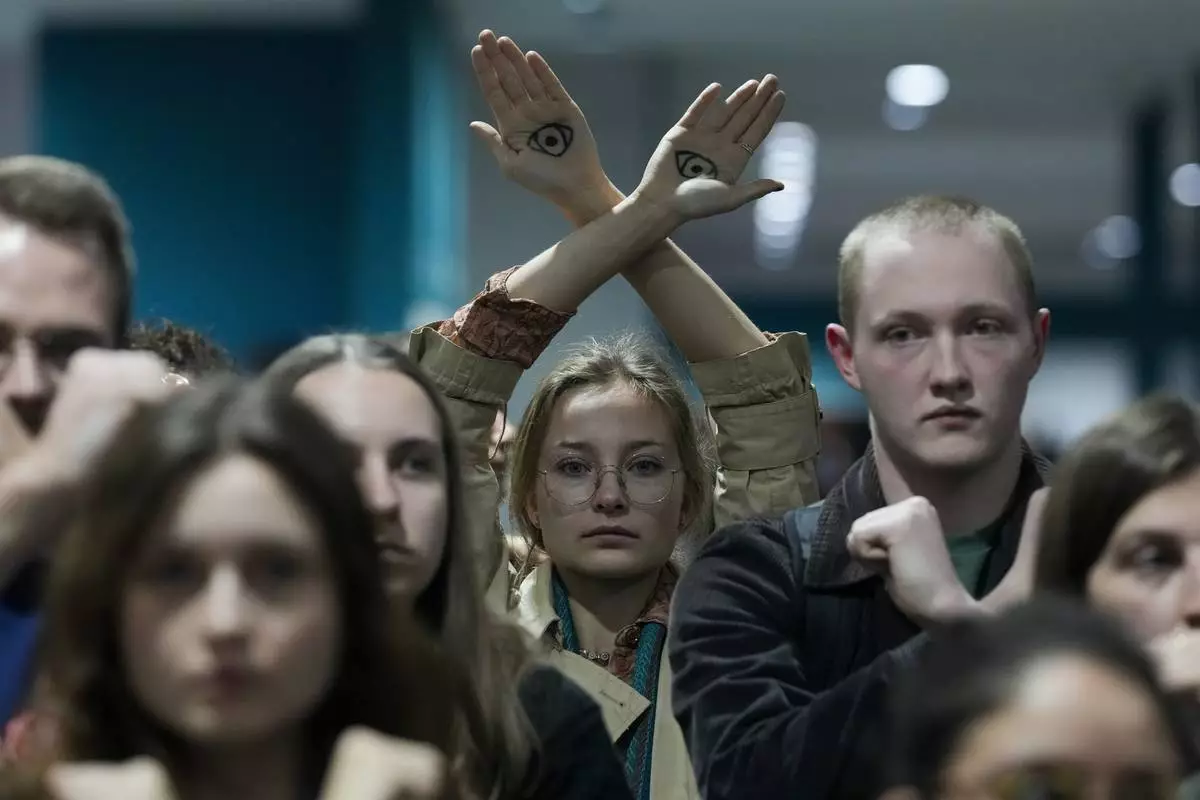
Activists demonstrate in silence protesting a draft of a proposed deal for curbing climate change at the COP29 U.N. Climate Summit, Friday, Nov. 22, 2024, in Baku, Azerbaijan. (AP Photo/Rafiq Maqbool)






































